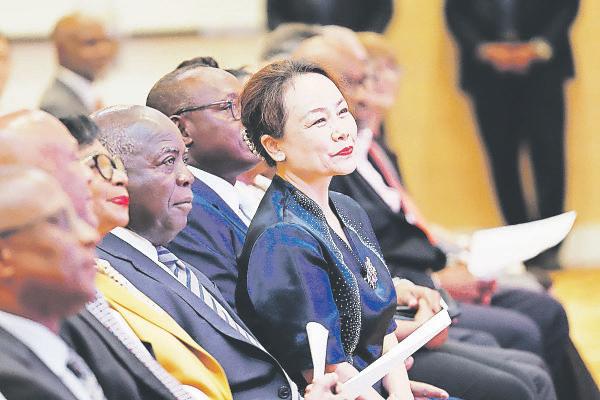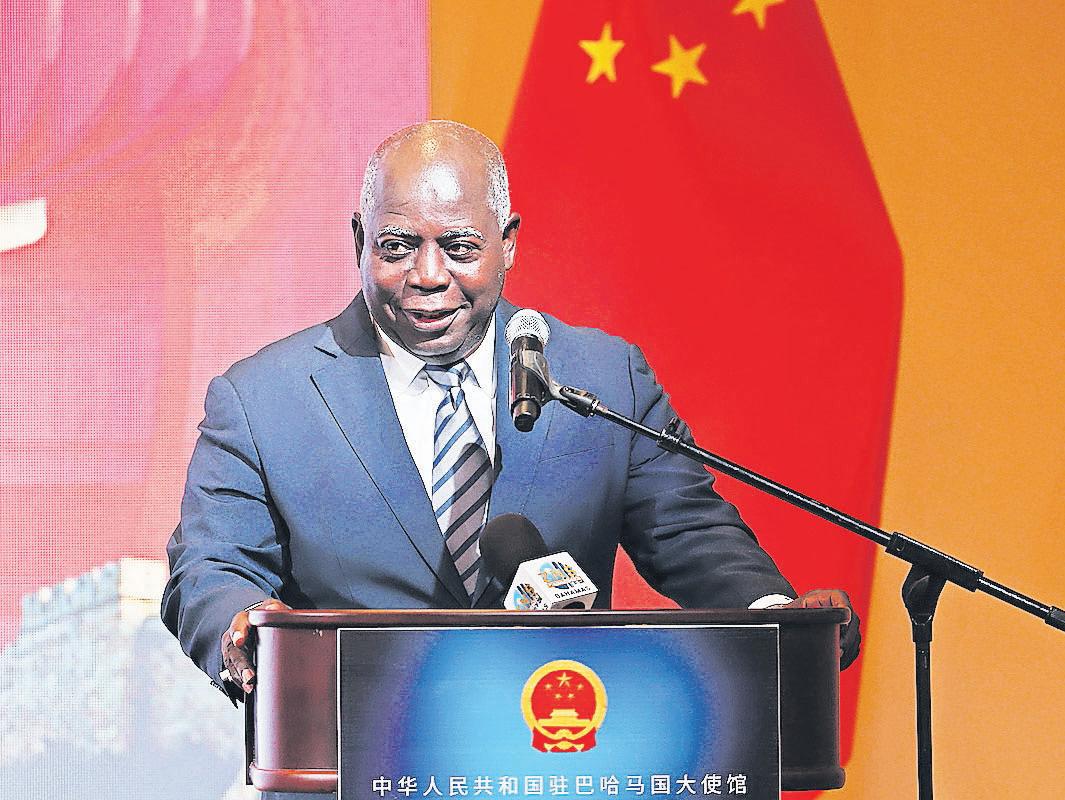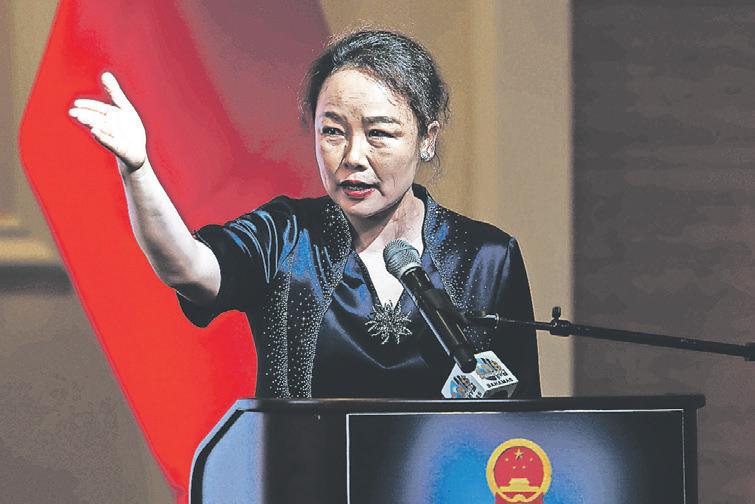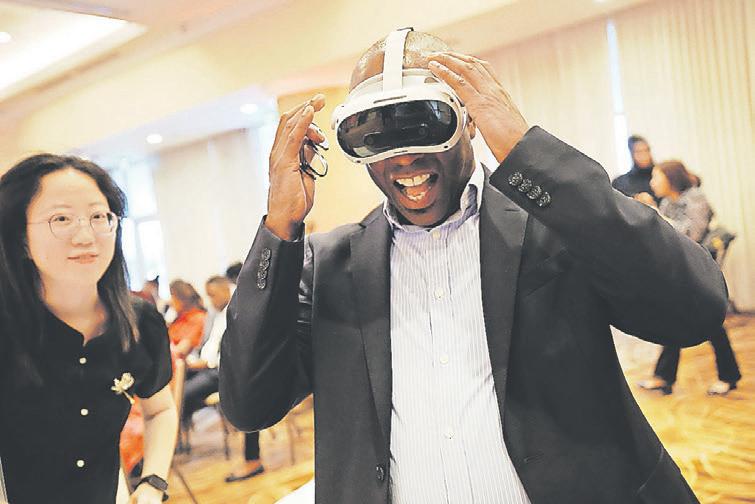








want
By EARYEL BOWLEG Tribune Staff Reporter
ebowleg@tribunemedia.net
TEn Junkanoo groups, including the iconic Saxons, Roots, and One Family groups, have thrown their support behind the Junkanoo Corporation of new Providence (JCnP), rejecting government claims that the overwhelming majority of groups want the national Junkanoo Committee (nJC) to manage the parades instead.
At a press conference yesterday, JCnP chairman Dion Miller accused the government of using its “political appointees” on the nJC to destabilise and politicise Junkanoo. He insisted the JCnP would not be sidelined, pointing
By DENISE MAYCOCK Tribune Staff Reporter
dmaycock@tribunemedia.net

The disruption at the Grand Bahama clinic left residents without access to doctors and nurses on Wednesday, when a medical team was due for its biweekly visit.
Mizpah Duncombe, who has maintained the clinic
THE government clinic in Sweeting’s Cay was forced to cancel medical services this week after overgrown bushes and a swarm of bees blocked the entrance — a problem that arose because the vendor responsible for yard maintenance says she has not been paid for six months.

By NEIL HARTNELL Tribune Business Editor nhartnell@tribunemedia.net
An $80m resort residential project proposed for Exuma’s Stocking Island will require “limited dredging” and the potential
By JADE RUSSELL Tribune Staff Reporter jrussell@tribunemedia.net
FORMER Democratic national Alliance (DnA) leader Branville McCartney yesterday rejected claims that he and former Prime Minister Dr Hubert
relocation of some moorings in the Elizabeth Harbour Field. The EIA for the Exuma Fund 2 project pledges that the 34.07 acre development - set to feature 38 residential homes and a 32-slip marina if approved - will
create “at least 40 permanent construction jobs” with the developer planning to use more than “75 percent Bahamian labour during both the construction and operation of the project”.




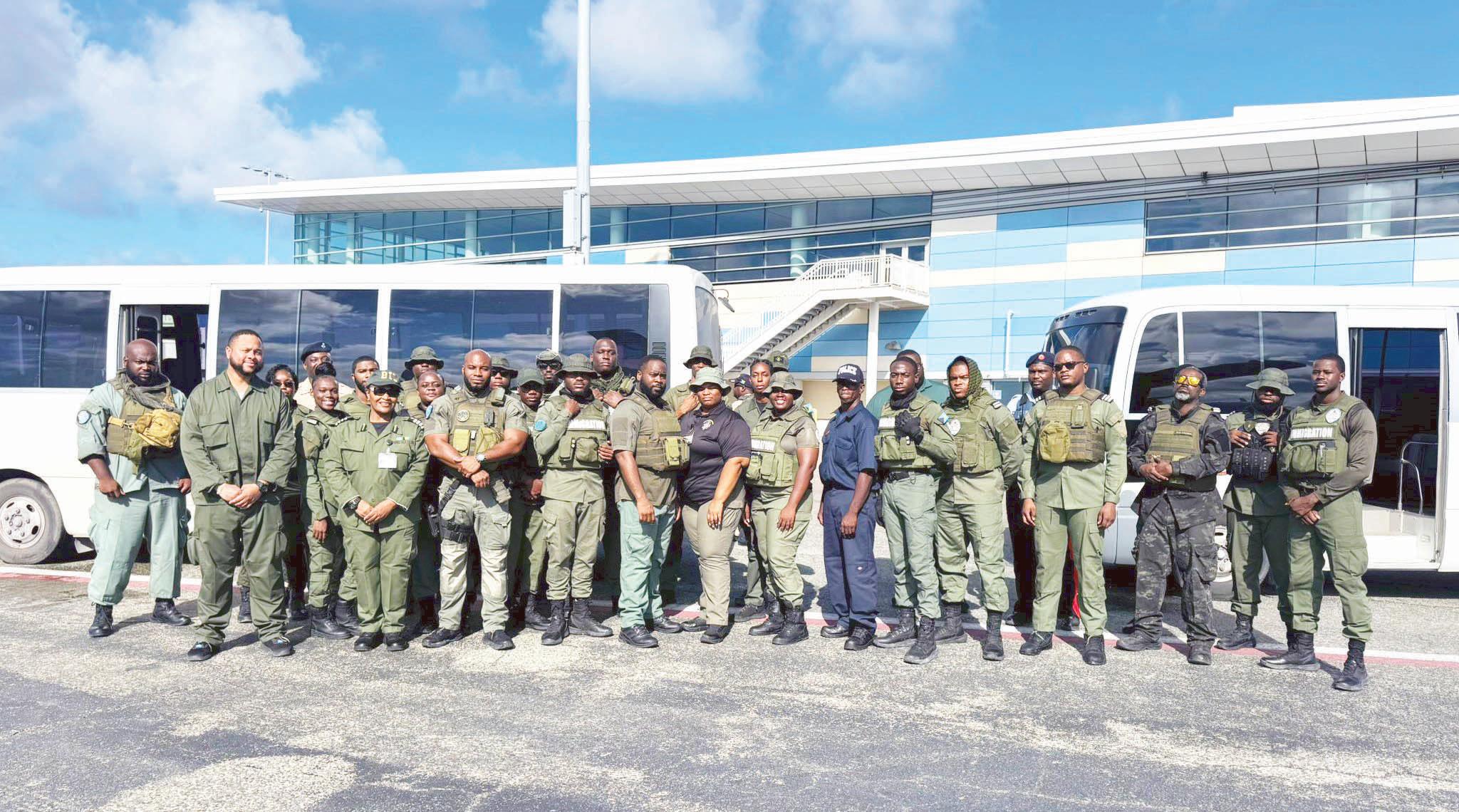
The Department of Immigration successfully executed the deportation of 64 haitian nationals yesterday, as authorities continue to crack down on immigration violations across the country.
The group, comprising 51 men and 13 women, was flown from Lynden Pindling International Airport to Cap-haitien, haiti, aboard a Bahamasair flight at 10.13am. The Department confirmed that all security
and health protocols were strictly observed throughout the removal process. The mass deportation follows a series of court appearances on Tuesday, September 30. Seventeen haitian nationals were convicted of Overstaying and Illegal Landing before Senior Magistrate Raquel Whyms, while a Jamaican man was convicted of Overstaying before Senior Magistrate Kendra Kelly Burrows.
All convicted individuals were ordered to be handed over to the Department of Immigration for deportation following the payment of fines or the completion of their sentences.
The Department of Immigration reaffirmed its commitment to upholding the laws of The Bahamas and urged members of the public to report any suspected immigration violations via the official hotlines.


RUMOUR from page one
showed “democracy is alive and well.”
Mr McCartney said he was as surprised as anyone to see the rumour and stressed he has no plans to return to politics.
“I’m out of politics. I’ve been out of politics for some time,” he told The Tribune. “I don’t have any type of political ambitions at this stage. It’s just really wanting to see what is best, no matter what the party is, what is best for the country.”
Mr Davis, asked about the rumour, credited his administration with putting the country in such a strong position that “everyone wants to be in his spot.” Smirking, he said it would be for the Bahamian people to decide, while expressing confidence the Progressive Liberal Party (PLP) will win a second term.
Deputy Prime Minister Chester Cooper added that the PLP would not be distracted by fringe parties, noting the government remains focused on re-election.
Mr McCartney has long been supportive of Dr Minnis, particularly as the former prime minister’s status in the Free National Movement (FNM) became uncertain. In March, Mr McCartney said the FNM would be “foolish” not to let Dr Minnis run on its ticket, urging members to put aside personal differences to strengthen their chances at the polls. In April, FNM leader Michael Pintard confirmed Dr Minnis would not be nominated in Killarney. The party later ratified Senator Barnett-Ellis as its candidate in the seat Dr Minnis has long held. Despite this, Dr Minnis has vowed to run in Killarney, saying he is confident of re-election even if the vote splits because of the constituency’s large population. Meanwhile, after years of silence, the DNA announced this week that it will regroup, reorganise, and elect new officers at a convention. Asked about the party’s return, Mr McCartney wished them well, saying everybody has a right to put their hat in the ring.
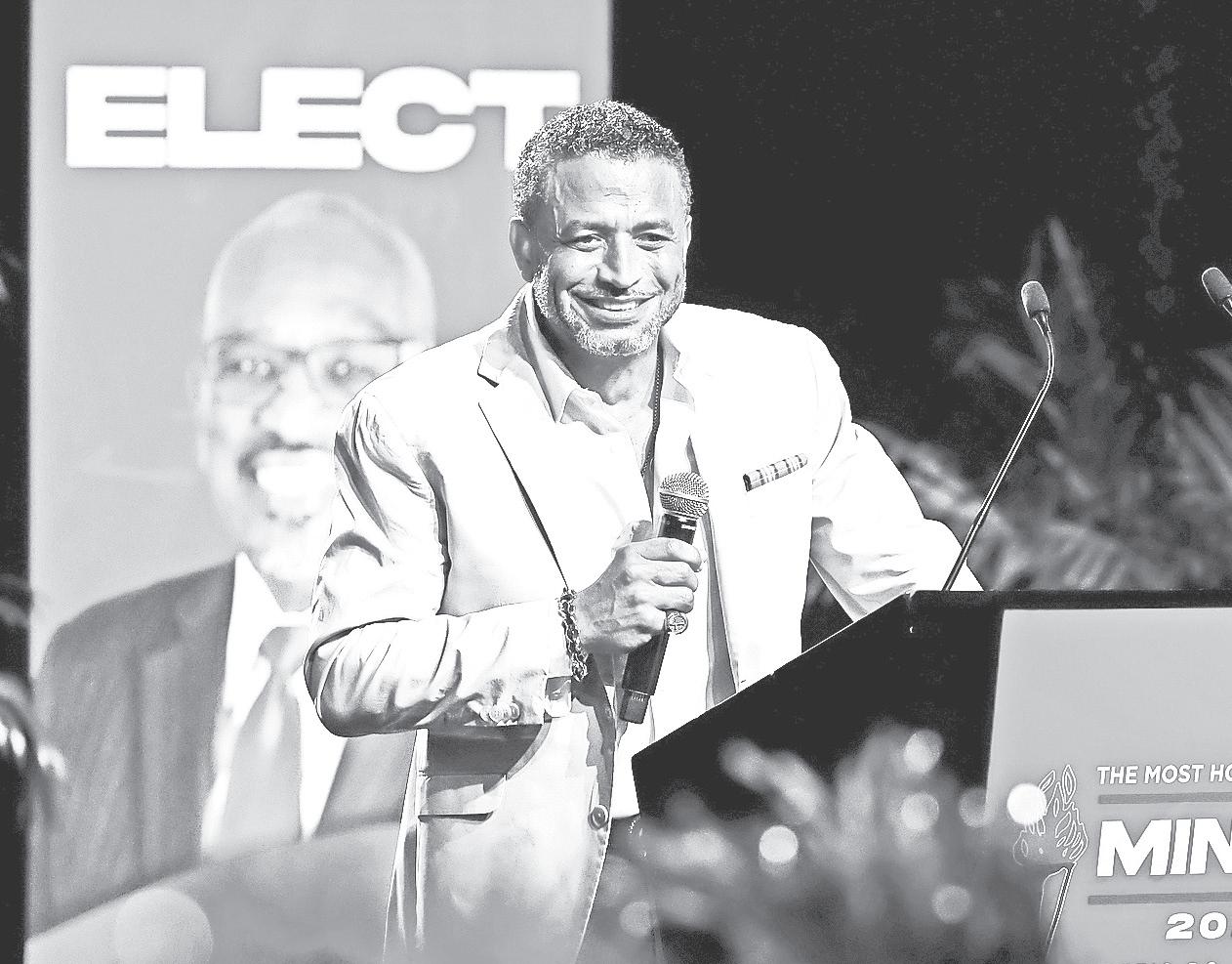
By JADE RUSSELL Tribune Staff Reporter jrussell@tribunemedia.net
SENATOR Michela
Barnett-Ellis has defended the work of the Parliamentary Human Rights Committee (PHRC) after questions were raised about whether the body is addressing critical issues.
“The Parliamentary Human Rights Committee is working,” she said yesterday. “We don’t take these issues lightly. We are treating them in a very
bipartisan manner, and so I’m asking the public to have faith in us.”
Mrs Barnett-Ellis, deputy chair of the PHRC, acknowledged criticism that the committee has not been visibly active, even as concerns persist about police brutality, domestic violence, freedom of religion, and arbitrary arrests. “That’s probably fair criticism,” she said. “Everybody can always work harder.” She added, however, that the issues being addressed cannot be
solved overnight.
In May, the committee said amending the Child Protection Act, enforcing the Protection Against Violence Act, and improving accessibility for people with disabilities were among its top priorities.
Mrs Barnett-Ellis explained that members have identified gaps in age ranges across various laws. She gave the example of people being too old for a care order but considered too young for other legal protections. She said the
By LYNAIRE MINNINGS
Tribune Staff Reporter
lmunnings@tribunemedia.net
NORWEGIAN Cruise Line (NCL) plans to hire more than 135 Bahamians by year’s end as part of a recruitment drive spanning the Family Islands throughout October.
The company said the initiative reflects its long-term commitment to building Bahamian talent at its private island, Great Stirrup Cay.
Jovo Sekulovic, NCL’s vice president of hotel operations and new-build delivery, said the cruise line’s growth depends on its workforce.
Mr Sekulovic said the company has made what he called a significant shift in staffing, with Bahamians now holding the majority of leadership roles on the island. He noted that 87 percent of directors and department heads are Bahamian, up from just 20 percent in earlier years. At the supervisory level, the figure is around 90 percent.
He added that the island currently employs 207 people, with plans to more than double that number to about 500 by the end of 2026.
Marion Curry, who is leading the recruitment campaign, said the cruise line is seeking candidates for a broad range of positions. These include certified lifeguards, AC technicians, plumbers, carpenters, power plant and water treatment technicians, island security officers, as well as managerial, supervisory, and entry-level roles. She said NCL is eager to attract Bahamians interested in building careers in the tourism sector.
The recruitment drive
begins October 3 at Great Harbour Cay and will move through Grand Bahama, Exuma, Andros, Abaco, and Eleuthera before concluding in Nassau on October 27–28 at the Department of Labour. Applicants are encouraged to bring résumés, NIB cards, passports, and police records, with interviews to be conducted on-site.
Ms Curry added that by
June 2026 — when a new water park is scheduled to open — the cruise line anticipates further hiring as ship calls rise to more than 525 annually, bringing over 5,000 visitors per trip.
Simone Thurston, manager of the Public Employment Services Unit at the Department of Labour, said the ministry supports the recruitment effort.

Ministry of Social Services has also complained that inconsistent age ranges make it difficult to provide support.
Although the committee is focused on amending the Child Protection Act, Mrs Barnett-Ellis stressed that the process cannot be rushed and must ensure all key areas are addressed.
The PHRC is also reviewing proposed amendments to the National Insurance Act.
The committee is made
up of five members of the House of Assembly and three senators. It was established by resolution on April 26, 2023. Shortly after, Attorney General Ryan Pinder, who chairs the body, led a delegation to Geneva, Switzerland, for the United Nations Human Rights Council’s review of the Bahamas’ human rights record. The committee first met on February 27 and has convened several times since, though meetings paused during
Parliament’s summer break. Its first post-recess meeting is expected to be with Marion Bethel, Commissioner of the Inter-American Commission on Human Rights. In the past, Human Rights Bahamas has urged the committee to address police brutality, arbitrary detentions, and inhumane prison conditions. Mrs Barnett-Ellis said the PHRC has not yet met with the Royal Bahamas Police Force regarding those concerns.
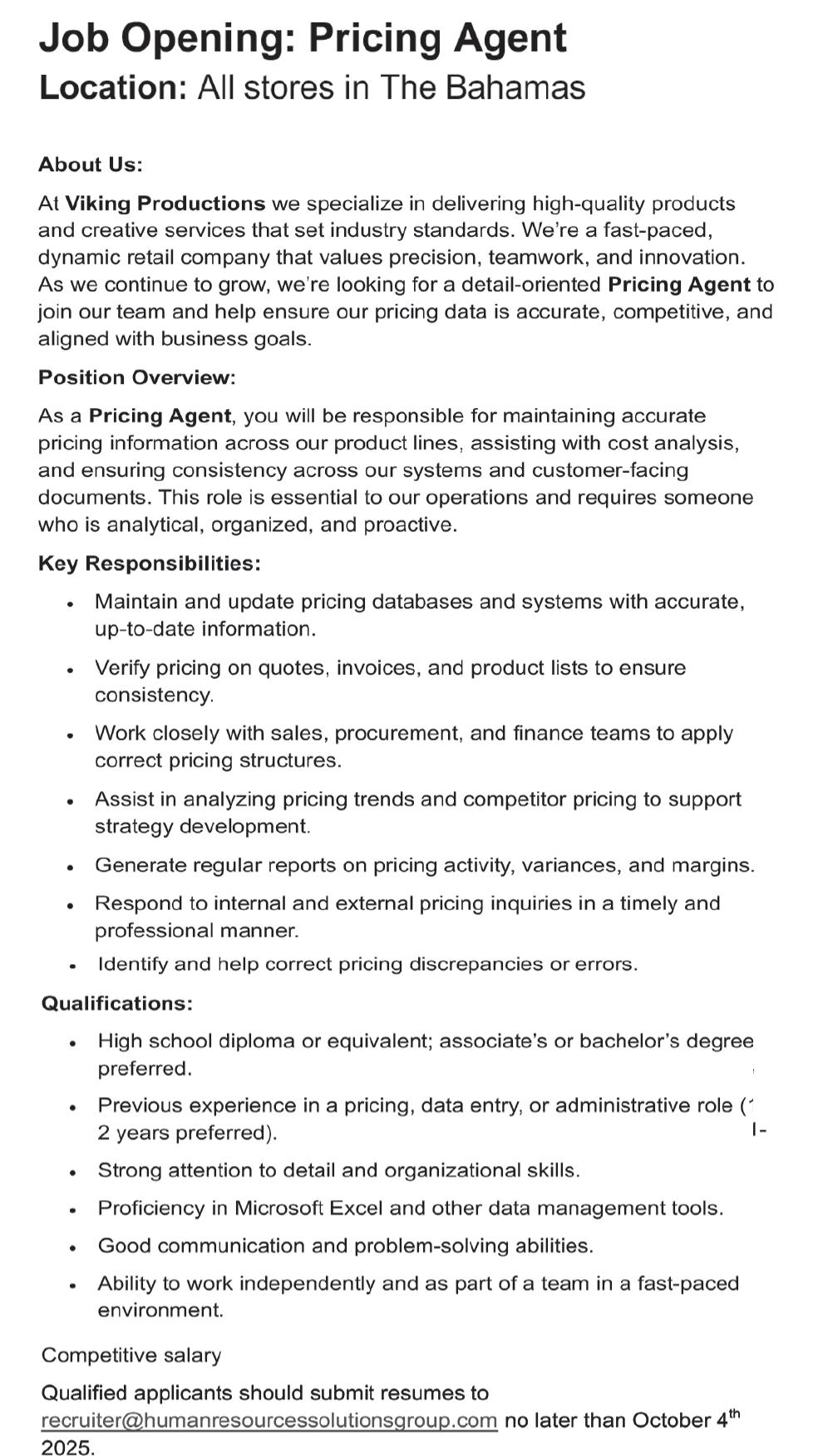
THE US Embassy in Nassau has suspended all non-excepted operations due to a lapse in federal funding in Washington, though passport and visa services will continue as long as conditions allow.
In a statement, the embassy said excepted functions include those necessary to respond to emergencies involving the safety of human life or the protection of property, as well as activities essential
to national security.
The embassy also advised that its Facebook and Instagram accounts will not be updated regularly until full operations resume, except for urgent safety and security information.
The shutdown follows the failure of Republican and Democratic leaders in Congress to agree on a stopgap bill before funding expired on September 30, the eve of the new
fiscal year.
International media reported that about 750,000 federal employees are now facing furlough, while essential workers must continue reporting to duty without pay. Under US law, employees are entitled to retroactive back pay once a shutdown ends.
White House press secretary Karoline Leavitt said yesterday that layoffs to the federal workforce are “imminent”.
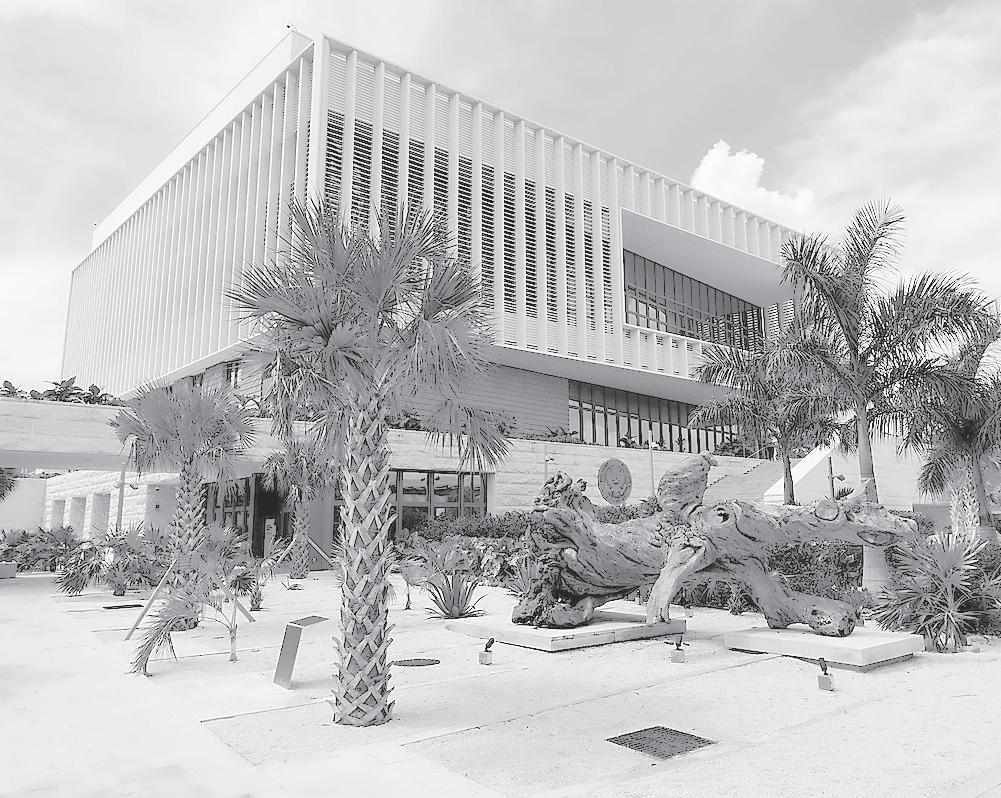
By LYNAIRE MUNNINGS
Staff Reporter
NORWEGIAN Cruise Line (NCL) says it has resolved nearly all labour concerns raised by workers at its private island, Great
Stirrup Cay, after numerous complaints and a government probe.
Jovo Sekulovic, NCL’s Vice President of Hotel Operations and Newbuild Delivery, said 95 percent of the issues have been addressed following
intervention by the Department of Labour.
“Whatever concerns we have inherited, they are actively being dealt with, and I would say 95 percent of those being resolved as well,” Mr Sekulovic said yesterday at a job fair
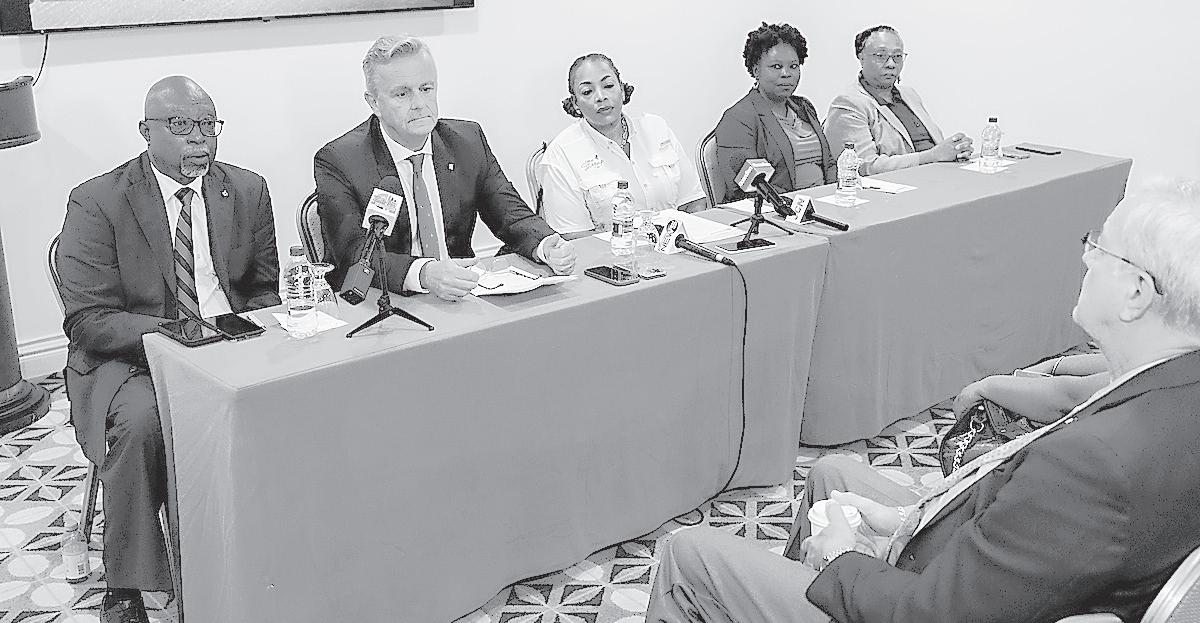

hosted by the cruise line. He added: “Our philosophy is to do things right, always nothing else.”
He credited Labour Director Howard Thompson and his team for their oversight, noting they had visited the island multiple times to ensure compliance with Bahamian law.
Mr Sekulovic also sought to dismiss perceptions that NCL had remained quiet throughout the controversy. “We might be perceived as the silent ones here, but I can assure you we won’t be the silent ones anymore,” he said. “Norwegian Cruise Line is a good corporate citizen. We are not there to trick anybody.”
He added that the company is committed to fostering growth for its staff, saying: “The focus should be on the quality, should be on development, should be on personal development. We want to make sure that those young boys and girls that come to work for us understand how great they are and what they can achieve if they put the work in, because nothing comes without hard work.”
Simone Thurston, Manager of the Public Employment Services Unit in the Department of Labour, confirmed the investigation into NCL’s practices had concluded but said she could not release details.
The Department of Labour launched the probe in April after a flood of complaints from both Bahamian and expatriate workers at Great Stirrup Cay. It was the first time during Mr Thompson’s tenure that such a large number of expatriate employees had raised issues collectively.
Letters sent to the
Department and government officials alleged employees were working up to 70 hours a week — far above the Employment Act’s 40-hour standard — without overtime, holiday, or vacation pay. Contracts allegedly misclassified staff as ship-based crew despite them being permanently stationed on the island, and wages reportedly fell below the minimum standard.
Workers also alleged unexplained payroll deductions, sudden salary reductions, and effective hourly wages as low as $2 to $4. In early 2024, management introduced a standard 40-hour work week but did not amend contracts or clarify how pay would be adjusted. By February 2025, new contracts were rolled out but later suspended after the Labour Department found they failed to comply with Bahamian law. Staff
claimed their pay was still reduced without retroactive adjustments, and some said compensation varied by nationality. Employees also voiced fears of retaliation or non-renewal of contracts for pressing for fair treatment.
At the time, Mr Thompson said the Department’s intervention was intended to reinforce that Bahamian labour laws protect all workers in the country, whether Bahamian or expatriate.
The controversy coincided with NCL’s announcement of a multimillion-dollar expansion of Great Stirrup Cay. Planned upgrades include a welcome centre, pool area with swim-up bar, splash pad, cabanas, and an island-wide tram system. The cruise line projects guest visits to exceed one million annually by 2026.


JUNKNOO from page one
to the line-up of established groups that remain under its banner.
Those groups include the Saxons, roots, one Family, The World Famous Valley Boys, The Mighty Eagles, redland Soldiers, The original Congos, the nassau Independent Junkanoo Association, and the Bahamas Independent Junkanoo Association. Suggesting the JCnP expects a significant rupture in the composition of parades, he said the supporting groups will compete under the JCnP’s new “league of Champions” banner.
The clash erupted after a recent nJC poll reportedly showed a 19–2 vote in favour of the nJC managing this year’s parades, according to youth, Sports & Culture Minister Mario Bowleg. In a statement yesterday, the ministry
said it “thanks the groups for their confidence and will proceed in the direction they have indicated, guided by the mandate they have given to the nJC”.
Mr Miller dismissed the poll, calling it “donald Trump type numbers”, and claimed anyone present at the meeting was allowed to vote.
He said that for more than two decades, the JCnP had built the parades into “cultural juggernauts” through partnerships with corporate Bahamas and the commitment of Junkanooers nationwide, only to see “repeated and deliberate attempts” to undermine that work.
Saxons chairman Toby Austin said his group sees no reason to abandon the JCnP despite its flaws. “Anytime there’s rules and something to vote on, you always come to the JCnP and be a part of that system,” he said.
By KEILE CAMPBELL Tribune Staff Reporter kcampbell@tribunemedia.net
A MAn accused of a deadly double shooting in St James road last week told a magistrate yesterday he did not want to be placed in any Bahamas department of Correctional Services (BdoCS) section with “the Kemp road Boys” as he was remanded after being denied bail. deon Ferguson, 28, appeared before Magistrate lennox Coleby Sr charged with the murders of 54-yearold demetrius Cooper and 23-year-old Eric Smith, and the attempted murder of 72-year-old Beatrum rolle.
Police said the incident happened shortly before 3pm on September 23, when a white Japanese vehicle pulled up to the rear of a residence and three masked men exited. They allegedly opened fire on a group in the yard, killing Cooper on the spot and hitting Smith, who later died of his injuries. rolle was shot in the upper body but survived after being taken to hospital. According to police, the
suspects fired more shots as they ran back to their vehicle.
Ferguson was arrested two days later with four others. He also faces a separate arson charge in relation to a June 12, 2025 incident where he allegedly set fire to a building belonging to Kendall Mortimer.
Both matters are expected to proceed to the Supreme Court by voluntary bill of indictment, with trial set for January 23, 2026. The firearm and ammunition matter involving Ferguson and his four co-defendants from the September arrests is scheduled for december 1. In court, Ferguson claimed he was already attending proceedings on the day of the shooting. He further asked the magistrate to note he could not eat canned food because it tends to make him sick.
Magistrate Coleby said those concerns would be directed to the prison commissioner and reminded Ferguson he will have the opportunity to raise his alibi when trial begins. He did not have to enter a plea at this stage.
By KEILE CAMPBELL Tribune Staff Reporter
kcampbell@tribunemedia.net
A 31-yEAr-old man with a master’s degree in mechanical engineering was sentenced to two years in prison yesterday after a magistrate recommended his academic skills be put to good use while he serves time for firearm and ammunition offences.
Brandon Carey was found with a black Smith & Wesson pistol and four unfired rounds of 9mm ammunition on September 5 while not being the holder of a special licence. He pleaded guilty to possession of an unlicensed firearm and possession of ammunition.
Magistrate lennox
The World Famous Valley Boys chairman Brian Adderley called it “foolhardy” for groups to disassociate from the JCnP, while one Family chairman Vernon rolle criticised the nJC poll, saying some groups were not invited to participate.
The standoff comes as the davis administration pushes its draft national Junkanoo Authority Bill, which would create a statutory body to oversee parades and funding. The JCnP has already accused the government of using the legislation to strip it of authority.
Mr Miller also linked the current turmoil to a split in the Valley Boys last year, claiming the government took sides by leveraging the connections of The Way Forward Valley Boys leader Trevor davis, the brother of Prime Minister Philip “Brave” davis.
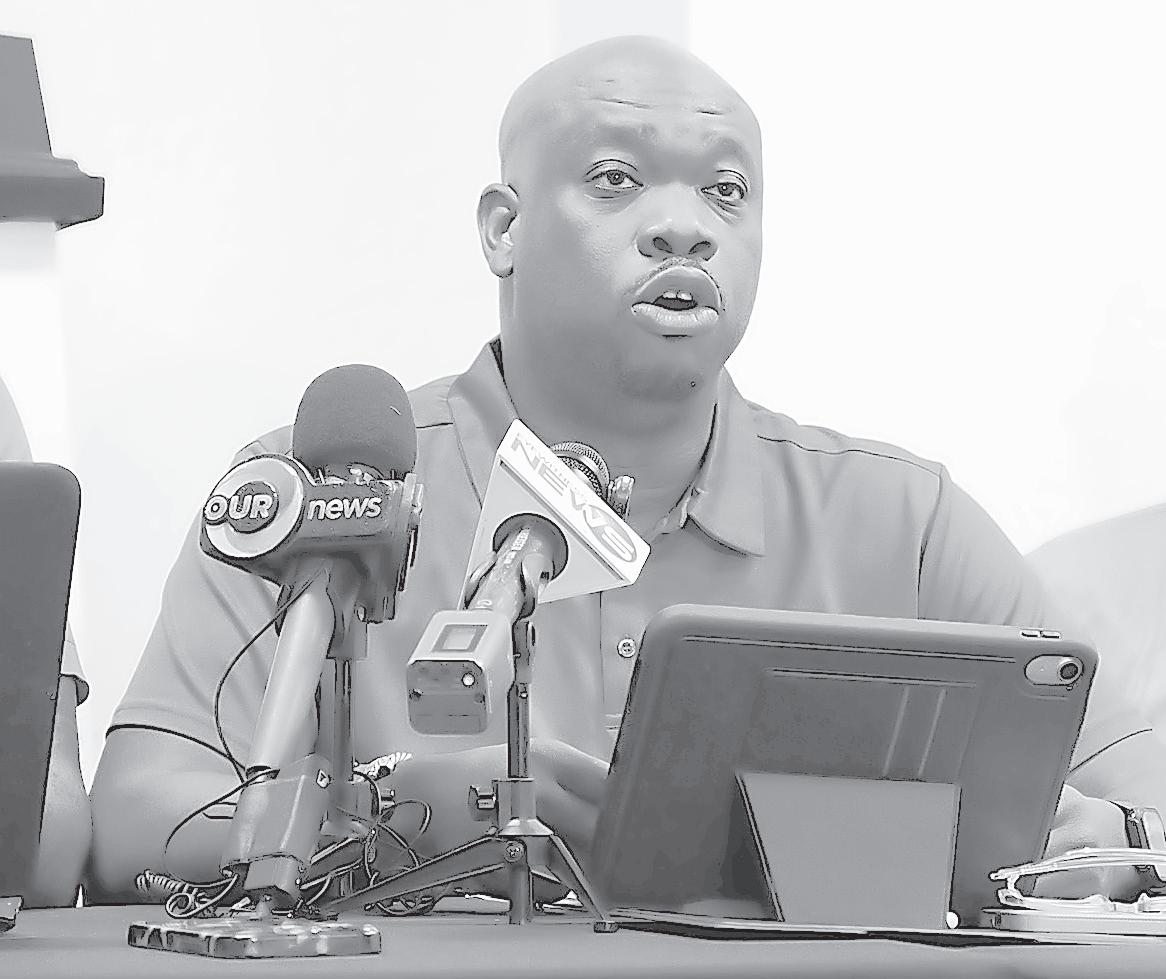
Coleby Sr sentenced Carey to 24 months for the firearm offence and imposed a $10,000 fine for the ammunition, with a default sentence of 12 months if the fine is not paid within a year. He added that Carey has a right to appeal. In his ruling, the magistrate said he would send a letter to the commissioner of the Bahamas department of Correctional Services instructing that Carey’s hair not be cut, as requested. He also recommended that Carey’s academic background be utilised while in custody. Carey additionally asked for his prescription glasses to deal with bright lights to be retrieved from his vehicle and brought to him while in custody. t wo-and-a-half years for M an having gun and a MM o
In Tuesday’s Woman section, in an article on the new Pilot Club of nassau’s Pilot International Club Ambassador, a sponsor was incorrecly as the late Emeritus sponsor. We apologise for the error.

By KEILE CAMPBELL Tribune Staff Reporter kcampbell@tribunemedia.net
A 20-yEAr-old man was sentenced yesterday to two and a half years in prison after pleading guilty to possessing a pistol and ammunition without a licence in new Providence last year.
dwayne Marshal admitted to having a firearm and five rounds of 9mm ammunition on August 20 2024 without the required licence.
He appeared before Magistrate lennox Colby Sr, who gave him 30 months for the firearm and 24 months for the ammunition. The sentences are to run concurrently and were backdated to May 26, 2025, the date his plea deal was accepted.
Police said Marshall was arrested in the capital with a black pistol and ammunition.
Marshall was represented by attorney Keith Seymour Sr, J.P., who urged the court to consider counselling and vocational training for his client. He told the court Marshall was interested in construction as well as academic courses in mathematics and English.
Magistrate Colby said it was best not to hold Marshall longer than necessary, noting that young convicts are sometimes at risk of leaving prison worse than when they entered. He said he would recommend to the commissioner of prisons that Marshall be enrolled in vocational and educational programmes during his sentence.
By KEILE CAMPBELL Tribune Staff Reporter kcampbell@tribunemedia.net
A 56-yEAr-old business owner accused of trying to take a gun and ammunition through security screening at Exuma International Airport last week pleaded not guilty to the charges yesterday.
Troy Brown was arraigned before Magistrate lennox Coleby Sr on counts of possession of a firearm and possession of ammunition. He denied both allegations.
Police said the discovery was made shortly after 7.20am on Friday, September 26, when security personnel detected a silver and black ruger pistol in a piece of luggage. Six live .380 bullets were also found.
officers were called to the screening area, where the bag was searched in the presence of its owner. The firearm and ammunition were confiscated, and three men — aged 56, 50 and 44 — were taken into custody.
In court, Magistrate Coleby granted Brown $7,500 bail with two sureties. He ordered the accused be fitted with an electronic monitoring device and report to Carmichael Police Station every Tuesday, Thursday and Saturday once bail conditions are met.
The magistrate referred the matter to the Chief Magistrate, noting that he was familiar with Brown. The Chief Magistrate will decide whether to preside over the case or reassign it. The case was adjourned to december 4.

NULLIUS ADDICTUS JURARE IN VERBA MAGISTRI
“Being Bound to Swear to The Dogmas of No Master”
LEON E. H. DUPUCH
Publisher/Editor 1903-1914
SIR ETIENNE DUPUCH, Kt., O.B.E., K.M., K.C.S.G., (Hon.) LL.D., D.Litt .
Publisher/Editor 1919-1972
Contributing Editor 1972-1991
RT HON EILEEN DUPUCH CARRON, C.M.G., M.S., B.A., LL.B.
Publisher/Editor 1972-
Published daily Monday to Friday
Shirley & Deveaux Streets, Nassau, Bahamas N3207
TELEPHONES
News & General Information
(242) 502-2350
Advertising Manager (242) 502-2394
Circulation Department (242) 502-2386
Nassau fax (242) 328-2398
Freeport, Grand Bahama (242)-352-6608
Freeport fax (242) 352-9348
WEBSITE, TWITTER & FACEBOOK
www.tribune242.com


IT often seems in this country that we spend a lot of money on something then never spend what it takes to look after it.
In a story today in The Tribune we report on a government clinic in Sweeting’s Cay that has been forced to close its doors. Why is that? Well, the person hired to look after the yard had not been paid for six months, she says, so instead now it has overgrown bushes and a swarm of bees that needs to be dealt with. And so it has shut down for now – no access to doctors and nurses during the biweekly visit. It might not seem like much – looking at the pictures of the clinic, the problem hardly seems insurmountable. But it forced a decision that resulted in residents being denied medical access. All because of not paying the bills to maintain the property.
In yesterday’s Tribune , entrepreneur Toby Smith was pointing out the damage that has seen the lighthouse on Paradise Island losing its lantern –now a broken and tangled mess on the ground after Tropical Storm Imelda. Mr Smith wants to reverse the decline – but whatever the next step is, it is another example of things being left to fall apart when a modest investment in maintenance earlier might well have made a difference.
We hardly need to look far for other examples. Take a stroll Downtown, for example, and look at some of the buildings that have seen far better days, especially some of the balconies. Or take a look at the roads that we bump-bump-bump our way over, too often discovering potholes when we hit them.
One cannot blame the vendor hired to look after the property if she is not being paid. No one can work forever without being paid. Over in Abaco in September, a property owner locked the Ministry of Works out of its office after going more than a year without rent. And a different kind of maintenance – the payments to the providers who operate the National Health Insurance provisions – have been missing on far too common a basis. When you build something or invest in something, you also have to budget for the maintenance that goes with it. Or the weeds grow, the building crumbles and everyone looks around as bits and pieces of our society fall apart around us. There is, of course, a better way. Budget properly for starters. Paying staff is not optional. One late payment should be mortifying to any financial manager – months of doing so is unacceptable. Imagine if proper planning and funding ensured that The Bahamas we have is not filled with decay and a lack of love. That should be basic management. Failing to do even the basics, while all too common, should not be tolerated. Too often it is. We let standards slip. And we see the results every day. That clinic situation should be resolved today. The overdue bill should be paid. And patients should be able to access doctors again as soon as possible. Why would we accept anything less?
EDITOR, The Tribune.
SUCCESSIVE governments have claimed to “work” in the best interests of the people! It is easy to point to any number of factors that would prove otherwise. In my opinion, one area where the government has not worked in the best interests of the people is in housing development. The Bahamas is situated in a hurricane zone; this is not a recent revelation. Inspite of this knowledge, successive governments have allowed and approved housing developments that occur in low lying areas prone to flooding. Persons are lured with the promise of “low-cost housing”, developers make millions of dollars and the government gets to pat itself on the back as it “keeps its promises” to the people. Have they really considered what their lack of vision might mean when Nassau is assailed by a major hurricane?
Tropical Storm Imelda has passed and in its wake are flooded homes, communities and thoroughfares! This, after a little more than a day of moderate rain with negligible tidal surges. Were this a category five hurricane, the capital would look like a war zone and entire communities would have been wiped out; there would have been Dorian level destruction in Nassau. One thing the government can consider is not allowing any more single home developments in areas prone to flooding. Multilevel housing developments can take place, once the proper structural analyses have occurred. The responsibility for elevating the foundations of these buildings would rest with the developer! Their costs will be recovered in the sale of units sold. Many Bahamians who buy lowcost housing cannot afford to elevate the foundations of the land they buy


EDITOR, The Tribune.
MANY people believe that we are facing a crisis in The Bahamas by virtue of the fact that the Bahamian government is unable to provide the mere basics required for civilised living.
pre-construction. This suggestion would use less land (as land is already scare in Nassau), to accommodate a larger number of people and it would afford more families greater safety from flooding if the capital ever sustains a direct hit by a powerful hurricane!
The government might also want to consider preserving high elevations of land, instead of allowing them to be cut down for fill. It seems hypocritical that those who claim to believe in climate change and rising sea levels would simultaneously remove places to which people might retreat as the sea swallows up the land!
Our governments tend to be reactive rather than being proactive. May these simple suggestions be considered by those who lead and those who aspire to!
JB Nassau, September 30, 2025.
The Family Islands particularly suffer, where water, electricity, phone and internet, health care facilities with trained personnel, adequate hurricane shelters for all residents, ambulances, fire engines, and adequate local government funding are all in short supply. Many believe we deserve better. Politicians have been making empty promises for far too long. How can we grow our tourism industry when we can’t even provide the very basics for ourselves?
The way to do this would be for The Bahamian People to put forth a petition to nationalise the web shop industry starting in 2026.
If a political party fails to endorse this petition, they should not be voted for, and then pointedly asked, why can they not support this proposal?
What is the gross revenue of the number’s houses? I have heard $500–600m a year. Is that not a whole lot of money?
The present owners of the web shops could be kept on as management and
would receive, say, $400,000 per year salary. If they are true, true Bahamians, they should have no problem allowing the Bahamian people to also share in this enterprise, from which a handful of people have gained unimaginable riches. These web shops should now be used for the benefit of our Bahama land, instead of just a few chosen ones. These owners of these web shops have already become some of the richest people in this nation. When is enough, enough?
In these times of uncertainty and upheaval, every penny of web shop proceeds should now be used for The Bahamian People. If the web shop boys don’t think this is fair, let them voice their opinions. Yet we must, in these difficult times, attempt to bring some justice, including economic justice to our Bahama land.
Nationalalising the web shops would serve two very valuable purposes for our country. Firstly, this is an amasing sum of money that could do wonders for the quality of life for All Bahamian people.
Second, it would cut off a serious impediment to our democracy, by keeping these funds from being used to support a particular political party, or as is often the case, supporting particular politicians. Can we see what the objections to this proposal could be and who they could be coming from?
Do these objections really have any merit, considering the fact that the People’s will certainly was not acknowledged by allowing the legalisation of web shops as currently exists, despite the People’s objections by way of referendum. Many of us wonder why, and are rather suspicious of the web shop/politician’s marriage. Much like the politicians marriage to Peter Nygard, FTX, et al not so long ago. The nationalisation of the web shops would immediately solve many funding issues our government is facing today There would be little need for charitable causes and philanthropy were we to use this money wisely, for the benefit and uplift of All Bahamians. I believe that this action is in keeping alive the teachings of Jesus Christ. And, the objections?
PORCUPINE Nassau, October 1, 2025.
grounds since Hurricane Dorian, said she could no longer continue the work without payment.
“I mow the lawn, chop the bushes down, and weed the property. I have not been paid in the last six months,” she said. “I even had to use my own money to buy gas. Sometimes I had to carry it from Freeport. I can’t do it for free.”
She added that she was told she would be paid once she submitted her business licence but, despite doing so, no funds were released. She claimed she had been maintaining the property for over two years without proper compensation, noting that a flowering tree near the entrance must be removed to allow safe access.
The cancellation frustrated residents, including Winnerfrit Mitchell, who said it was especially difficult given they must normally wait two weeks to see a doctor.
“They have to do something about that,” she told The Tribune. “It’s not a good thing. The doctor will be a while before he comes back over to the clinic, and
the doctor can’t tend to anybody, so that problem needs to be resolved.”
Acting Hospital Administrator Tevard Bastian confirmed the closure and said officials were reviewing the matter.
“We presently don’t have clinic now. We’re trying to get a grasp on what went wrong. If there are issues impacting the delivery of care, we will address it in the shortest possible time,” he said, later adding that lawn care had been completed and the clinic would reopen Friday.
Mr Bastian said he was told the vendor had experienced operational challenges but had not yet spoken with her directly. Asked about her claim of not being paid, he said: “I cannot confirm that because I did not have my finance person to verify that, I am not aware of that, and I will gladly follow up on it.”
The Sweeting’s Cay shutdown is the latest example of government services being disrupted over unpaid bills.
In September, an Abaco property owner locked the Ministry of Works out of its office after going more than a year without rent. The family that owns the
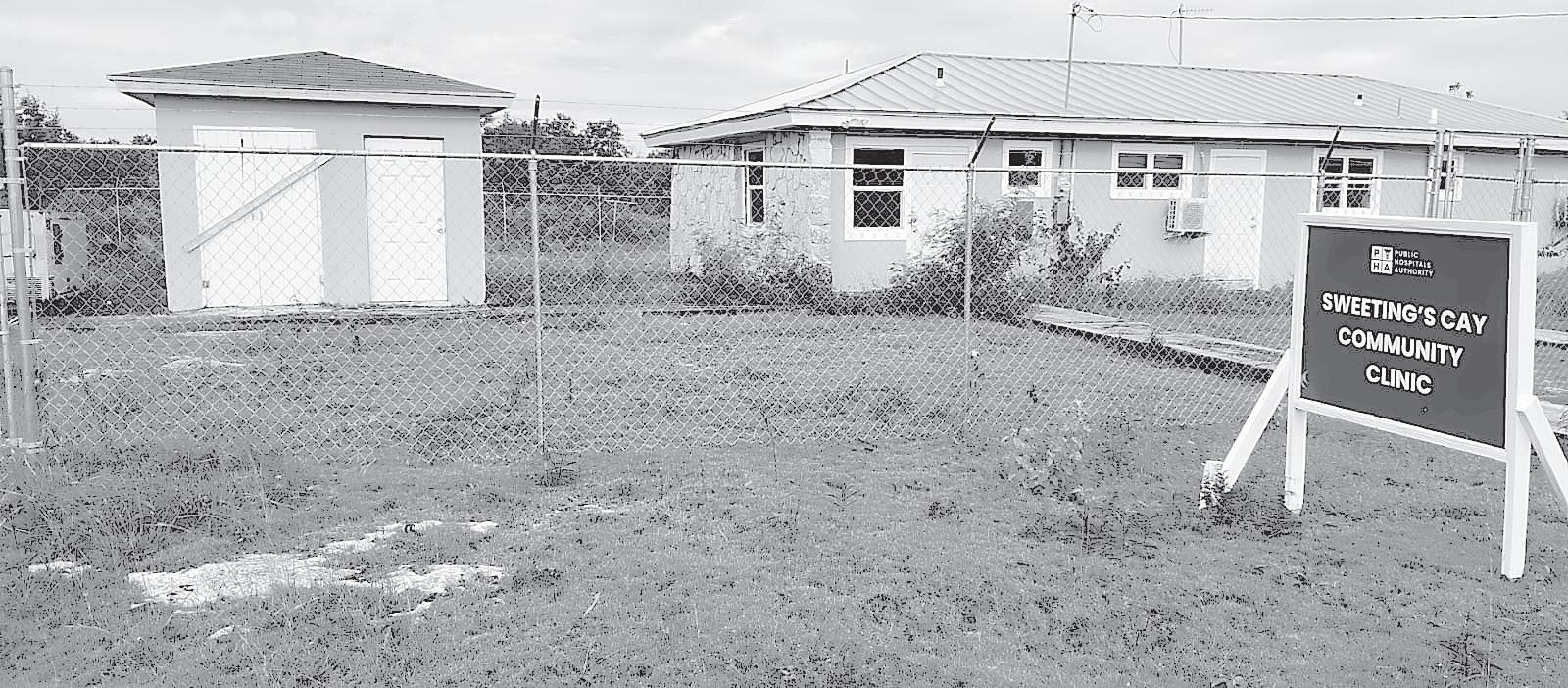
building said they were owed more than $150,000 in unpaid rent and renovation costs. Works Minister Clay Sweeting acknowledged the delay, blaming officials for failing to carry out a Ministry of Finance directive. He said the matter was referred for administrative review “on the grounds of insubordination to a government directive.”
Meanwhile, the government has repeatedly been criticised for delayed payments to providers in the National Health Insurance scheme.

from page one
workshop during the University of The Bahamas’ fourth Democracy Conference.
“We’re not going based on what politicians want to do or what political parties want to do. We’re starting with us, what are the issues that we see, and not just that, but tapping into our own knowledge and experience to be able to solve these issues,” Ms Wallace said.
The small-group workshops, involving two to four participants, focused on issues tied to health, education, youth, and LGBTQI rights. One of the most urgent themes raised was the lack of variety and accessibility of
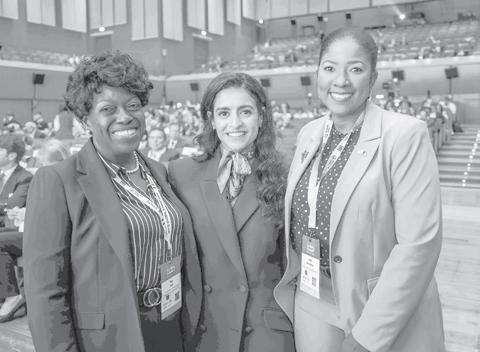




menstrual products.
Ms Wallace noted that while pads, tampons, and sanitary napkins are stocked locally, newer alternatives like menstrual cups, discs, and period underwear are rarely found. She said this shortage often stems from suppliers refusing to import items they consider unprofitable.
“Why might that be?” she asked. “We landed on the fact that people with bodies that menstruate are decentered across the board – just unimportant and don’t need any attention. So we asked, where does this issue show up? Where does it affect people? And pretty much everywhere, because menstruating bodies go everywhere and are needed everywhere, school, work,
family, church, all these different places.
“But we also found that this is happening from the very beginning. When you get your first period, and somebody talks to you about it, how many people who have ever menstruated were presented with options for products that they use in that first talk? Was everyone pushed towards pads?”
She said participants also described troubling experiences with access to postpartum products and criticised how election campaigns routinely overlook the needs of people who menstruate, including reproductive health care.
Ms Wallace added that the lack of reproductive health data continues to hinder progress. She urged
solutions such as gender mainstreaming, education, secular approaches to policymaking, and challenging Christian fundamentalism.
The group recommended allocating resources to create a knowledge base to support national manufacturing of tax-free menstrual products, with models to be shared with CARICOM.
Also at the conference, Aneesah Abdullah, United Nations Country Coordination Officer for The Bahamas, highlighted concerns about state capture, describing how privatesector profit motives too often drive political decision-making.
She said participants perceived that a small number of business actors exert disproportionate influence on key policy choices.


“Empathy is a remarkably selfless emotion: it requires a person to leave the comfort of their own perceived place in the world and inhabit the experience of someone else.” - Amber
Heard
Some years ago a group of senior students from a suburban upscale high school in the US went on a community service project to an urban church that had a well-established meal program for homeless individuals and families.
The students, from comfortable and highly privileged upper middle class and wealthy families, were somewhat nervous that they would be serving meals to homeless children and families who were beset by an encyclopedia of social and mental problems, and who were, seemingly, a world away from the daily and life experience of the high schoolers.
When the students arrived at the church, they were in for a holy surprise and the unexpected incarnation of a new spirit.
Instead of helping to feed the hungry and homeless clients at the shelter, the students were asked to join the line along with those who were being served lunch.
In pairs, the students were asked to sit with the others being served, who were not coiffed, deodorised or designer-branded as were the community service participants. Those who came to serve were suddenly recipients of service. They were not able to hide behind the superior position of ladling soup or dishing food for others. They had to engage the clients of the center in conversation over a simple meal.
Clearly, the students could not truly understand the mental illness, posttraumatic stress from war, addiction, domestic abuse, alcoholism, misfortune and other experiences of homelessness and poverty of those who had to every day, often three times a day, wait on a line in order to eat.
After the service project the young people would soon return to their suburban comfort and choice of just about anything they wanted to eat at any time of the day.
But that day, for the first time, for a number of the students, there were the dawning glimmers of empathy and understanding for homeless and hungry
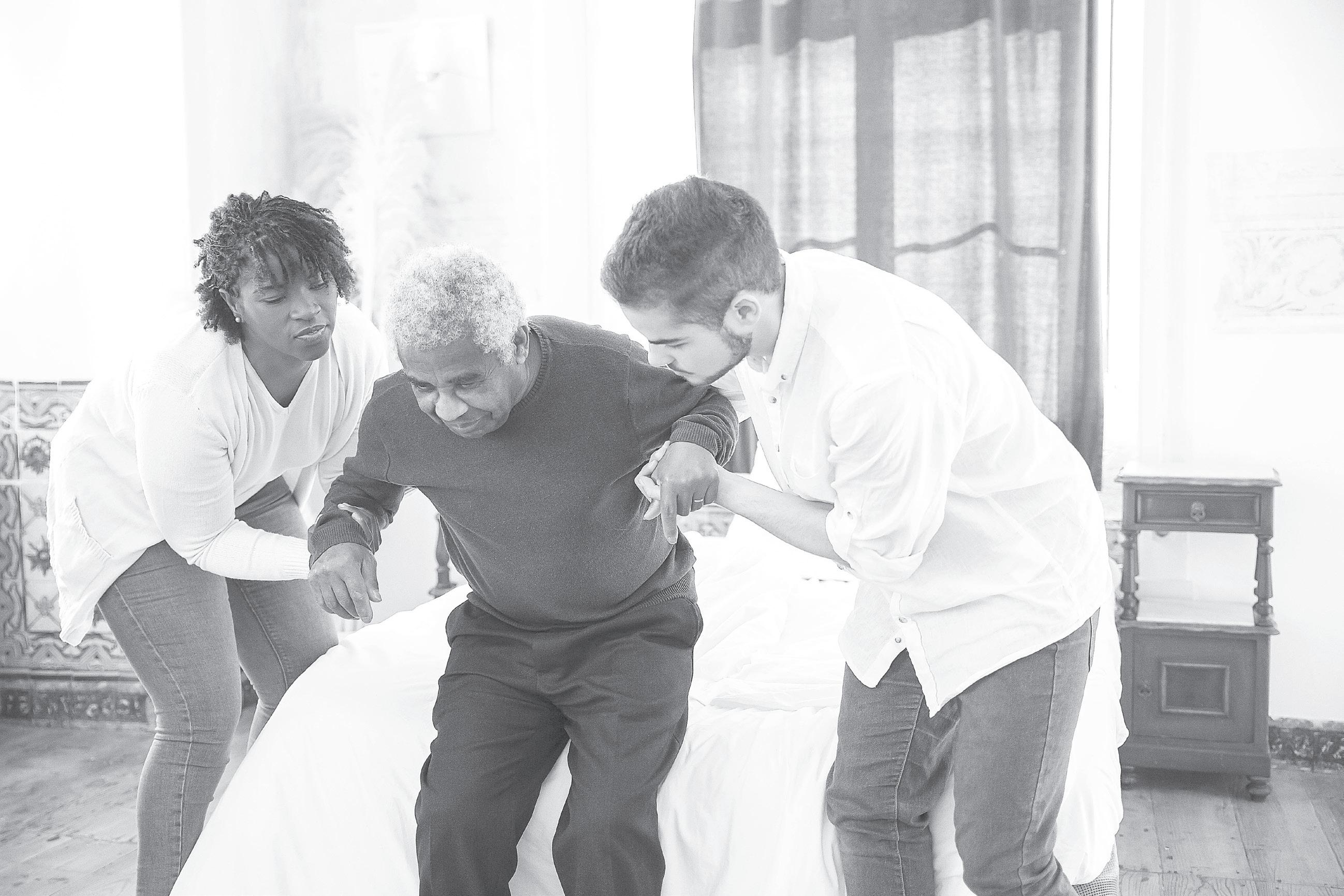

people they had only seen on television or at a distance on the streets.
For what was only a glimmer, they briefly left “the comfort of their own perceived place in the world and inhabit[ed] the experience of someone” else.
In so doing, they enjoyed a greater sense or the “faint or wavering light” of their own vulnerability, and possibly a sense that they might at some point in life experience the very same vulnerabilities of the homeless men and women with
whom they shared a meal and conversation.
One of the students had just broken up with his girlfriend. He was bemoaning the loss of a first love. The conversation at lunch with the homeless veteran with whom he shared lunch was about girlfriends and the loss of love.
Whether homeless, or privileged to live in a nice home, there is no human distinction or divide when it comes to heartbreak, loss, loneliness, the betrayal of a friendship, and other fractures of relationships.
The student marvelled that instead of “feeding the homeless”, for which he could morally pat himself on the back and brag about to his peers; he was instead the recipient of kindness, understanding and the gift of empathy from someone he came to serve.
Service and empathy are infused, pregnant with paradox, ultimate surprise, the shattering of our pretensions and privileges, akin to one of the master paradoxes of Christian spirituality: “Whoever tries to keep their life will lose it, and whoever loses their life will preserve it.” (Luke 17:33).

Service and empathy are infused, pregnant with paradox, ultimate surprise, the shattering of our pretensions and privileges, akin to one of the master paradoxes of Christian spirituality:
“Whoever tries to keep their life will lose it, and whoever loses their life will preserve it.” (Luke 17:33).
Through self-donation and service of others we are transformed and gather the threads and moral energy for conversion – and joy!
Our myriad anxieties, avoidance of pain, fears, insecurities, disappointment, loss of loved ones, hopelessness, boredom, tedium, discontent, and other ailments of the spirit are not tamed by materialism and other distractions.
Being cocooned and anesthetised in our luxury homes, luxury cars and first class privileges breed pretension, indifference, boredom and loneliness.
By losing ourselves in the service of something grander than our own needs or pampered comfort is the only genuine path for true joy, which is not the same as the temporary happiness that comes from endless material acquisition.
A student considered a little awkward by some of his peers, who was not among the popular set on the school social circuit or one of the celebrated athletes or one of the so-called smart kids, bumbled along in high school, somewhat socially isolated.
He was a so-called C-student who struggled academically. He failed to
complete his first community service program. He probably drank a little too much and smoked too much weed on the weekends.
The summer before his last year in high school, he signed up to be a volunteer at a Muscular Dystrophy Association (MDA) camp for kids in order to meet his community service requirement.
“Volunteers work with campers, providing around-the-clock care and attention. Counselors push wheelchairs, meet the daily needs of each child and become a youngster’s friend for a week.”
Over the course of a holy week, the student emerged from the cocoon of certain weaknesses and vulnerabilities, transformed into one of the better volunteers the MDA Camp saw that year. He found new and unexpected life and joy.
His supervisor marveled at how this shy and awkward young man came to love and was loved in return by a disabled young boy, of whom the former became his companion, friend and helper aroundthe-clock during a summer of transformation for both of them. Even after the student
had finished his community service requirement he returned to help and to serve because, to paraphrase his joy, he was compelled to do so.
As other students were called to receive their academic awards at graduation that year, he was given the school’s Community Service award, to the delight and surprise of his parents and peers, and to his own great surprise.
We serve and are transformed not only from our strengths but more often from the depth and struggle of our vulnerabilities.
The Sufi mystic and poet Rumi instructs: “The wound is the place where the Light enters you.”
Our wounds can destroy and leave shards and shrapnel in our bodies and spirits. They can also aid all manner of healing if we do not run from them in endless escapism and denial. Some who have experienced physical abuse become more empathetic.
But some turn into abusers. Some victims of abuse describe how working with others who were abused helped them to cope with their own pain and struggle.
There are psychological and emotional knots inside each of us which may be slowly unbound or eventually shredded, if we are fortunate, through a genuine empathy which recognises in others our own struggles. When we convert our struggles into service and empathy we experience more of our moral goodness and what it means to be genuinely Christ-like.
• This column was first published in 2019. It is reprinted with some changes.
The latest US government shutdown started yesterday at midnight. Generally, if it doesn’t last too long, these events don’t affect us in The Bahamas very much if at all. They don’t even affect most Americans in their everyday lives too much either. When US voters do begin to feel the effects and register their dissatisfaction, the Congress in Washington usually wakes up and figures out how to restore the government with all its imperfections and inefficiencies.
Most of these shutdowns are blatant publicity grabs by greedy politicians who imagine that their grandstanding will impress their casually engaged constituents back home. We will see if the current shutdown is different from its predecessors.
Among the more visible US agencies, this particular shutdown has sidelined up to 89 percent of employees at the environmental Protection Agency but only five percent at the Department of homeland Security, which is of course home to US Customs and Immigration enforcement (ICe).
The State Department is experiencing a 62 percent layoff rate, but American embassies and consulates abroad, including ours in Nassau, are expected to operate as usual, and visa and passport operations are proceeding normally.
Air traffic controllers are on the job at American airports, though as in previous shutdowns many are working at reduced or no pay. They will be expecting reimbursement when the shutdown ends.
The American Department of Defense is suffering a 45 percent layoff rate among its civilian, mainly US-based workforce. The US military is deemed essential to national security and remains on the job with unreduced pay and benefits.
Which brings us to the biggest story of this week, notwithstanding the headlines about the government shutdown. The biggest story is the continuing attempt by the current American administration to alter the orientation and perhaps the mission of the US military.
As the continuing shock


and awe of this second, more intentional Trump administration continues to sink into the American consciousness, a clear majority in the US disapproves of the president’s tactics and manners while more subtly reinforcing his belief that in many areas, voters agree with him. Most Americans still cannot fathom the craven acquiescence of Congress and the Supreme Court in Trump’s persistent and effective efforts to strip from them much of their oversight powers over his executive branch of the government. But as those same Americans bristle at and increasingly fear Trump’s efforts, most still
believe in the ultimate firewall against an overzealous president – the American military.
As one pundit remarked much earlier this year as the Republican/conservative blueprint laid out in the scary Project 2025 emerged as precisely the script for a second Trump administration, “we will always have our professional military as a bulwark against the autocratic tendencies of this or any other president.”
Really? On Tuesday on the grounds of the sprawling US Marine base in Quantico, Virginia about an hour south of Washington, Secretary of Defense Pete hegseth and Trump both addressed an

unprecedented assembly of around 800 US generals and admirals who had been ordered to attend from their posts in America and from all over the world.
To many, the fate of American democracy still rested in their hands. News film and reports from the meeting showed the military leaders watching hegseth and Trump impassively as their leaders delivered remarks better suited for a political campaign rally than such an impressive gathering of military professionals.
At one point in his typically rambling remarks, Trump noted the lack of response from his audience. “You can agree with me or disagree with me,” he told the gathering. “But if you get up and walk out, that would have consequences for your career and future.”
That epitomises the president’s approach to government civilian and military employees alike. he clearly thinks that government employees should give their allegiance to him, as the elected head of their government. They should accept his often-iconoclastic views on the traditions of his current office. They should join in his retribution toward political foes and personal enemies. They should embrace his traditional Republican view that the federal government is too big and too little responsive to conservative leadership in the White house.
Failure to comply should result in dismissal, in Trump’s view. While most US presidents doubtless have shared this view at least episodically, none since Richard Nixon has acted on their impulses as has the current chief executive.
It has long been an open secret in Washington that for ambitious military officers in the US Army, Navy, Air Force, Coast Guard or Marines, the surest path to future promotions lies in distinguished combat service or, in failing that opportunity in peacetime, the cultivation of warm personal relationships with key officials in the White house, on Capitol hill, or
in the more shadowy halls of the Departments of State, Treasury, Justice and Defense, and in the Central Intelligence Agency. This makes sense. Rising military officers increasingly need to develop and show political skills, whether in developing key contacts overseas in allied (or even adversarial) militaries, or domestically in other key related federal national security agencies. Logically, as the next generation of national security leaders emerges in the executive branch, in the US Senate and in key federal agencies, relationships will exist that promote valuable and swift decision-making in the American national interest.
Trump & Company are seeking to alter that calculus. They are seeking to require allegiance to him and to his administration allies, judging that to be the highest obligation for government and military employees.
From elon Musk’s Department of Government efficiency (DOGe) to the continuing machinations of Office of Management and Budget (OMB) director Russell Vought, the current American administration is championing the notion that cutting positions, staff and programs from the federal government is a cherished and meritorious goal. The US government is the largest single employer in the country, with a workforce estimated at three million, including active-duty military personnel. Meantime, the Trump administration is ramping up its military offensive and general bellicosity against drug trafficking in the Caribbean. hegseth has travelled to Puerto Rico recently in a previously unpublicised visit, and the Pentagon is considering using Puerto Rico as part of its operations. This comes after American military planes have destroyed several Venezuelan small boats at sea that the US administration said were smuggling drugs from Venezuela. Over a dozen people have been killed in these attacks, and Trump has suggested that more are planned.
hegseth has used warlike language to describe the Pentagon’s role in combating drug trafficking, a crime usually handled by
civilian law enforcement such as the DeA. According to published reports, at least eight US warships have been reassigned to the Caribbean as part of an “enhanced counter narcotics operation” in a move the Venezuelan government called a provocation. US relations with the Maduro regime in Venezuela continue to deteriorate. In Washington, Maduro is viewed as far too cosy with regional leftist governments in Cuba and Nicaragua and with some of America’s most potent overseas rivals including China, Russia and Iran. Maduro’s reelection last year is scoffed at as illegitimate, and rumours persist of clandestine US efforts to topple his government.
Additionally, for the first time in three decades, American relations with neighbouring Colombia have also deteriorated. Colombian president Gustavo Petro actively participated in a pro-Palestinian demonstration in New York during the recent UN general assembly, and the US revoked his visa in retaliation. The Colombian foreign minister just voluntarily renounced her US visa to support her president and prolong this diplomatic tit-for-tat. Petro has also denounced the US military attacks on the Venezuelan boats.
Still more significantly, for the first time since 1997 the US has ‘decertified’ Colombia for insufficiently working to suppress its cocaine production and drug trade. While this action is largely symbolic, it certainly indicates worsened bilateral relations. In that connection, Colombian elections are due next year. There have been several reports that Petro’s belligerency toward the US is designed to aid his party’s political prospects in those elections.
And meanwhile, as the US military’s role changes overseas, Trump’s deployment of National Guard units to American cities led by Democratic mayors continues, most recently in Portland, Oregon. Trump sees such actions as underscoring his law-and-order credentials while weakening political opponents. But it’s also further altering the role of the US military, with unforeseeable consequences.
By RIO YAMAT Associated Press
If a US government shutdown goes on long enough, it could throw a wrench in travel plans, potentially leading to longer airport wait times, flight delays and even cancellations.
The shutdown began Wednesday after President Donald Trump and Congress failed to reach a deal to continue funding government services and operations. That means a vast majority of employees who keep US airports and air travel running are working without pay until the government reopens.
“The longer a shutdown drags on, the more likely we are to see longer TSa lines, flight delays and cancellations, national parks in disrepair and unnecessary delays in modernizing travel infrastructure,” Geoff freeman, president and CEO of the US Travel association, warned in a statement.
Here’s what to know about the shutdown and its potential impacts on your travel plans.
Flying during a shutdown
Travellers can still fly despite the lapse in funding, and early on in the shutdown, they might not even notice any issues at the airport.
Control towers and airport security checkpoints will still be staffed, with about 13,200 air traffic controllers and more than 61,000 Transportation Security administration employees expected to remain on the job.
But as more time passes for the workers since their last paycheck, travellers could start to see longer lines at security and flight interruptions, said Jeffrey Price, professor of aviation at the Metropolitan State University of Denver.
“The system does become a little bit more brittle, the longer this goes, the more the traveller is going to notice it,” Price said.
That’s what happened in 2018 and 2019, when Trump led the country into its longest shutdown ever for 35 days during his first term.
about three weeks into that shutdown, some unpaid security screeners started calling in sick, and air traffic controllers sued the government in a bid to get their paychecks. Miami International airport had to temporarily close one of its terminals because TSa officers were calling in sick at twice the airport’s usual rate.
The latest shutdown is unfolding at a time when both the TSa and the federal aviation administration are already facing staffing shortages, including a shortage of about 3,000 air traffic controllers.
If the system can’t handle the number of flights that are scheduled, the faa will slow down landings and take offs and passengers will see more delays and cancellations. The agency has done that recently when it didn’t have enough controllers to handle all the flights coming in and out of Newark airport after
technical problems there.
Traveller safety and security
Nick Daniels, president of the union that represents air traffic controllers, said a shutdown weakens the aviation safety system by adding stress on controllers and taking away many of the workers that support them and maintain the outdated system they rely on.
“They’re out there working right now with critical staffing — the lowest staffing we’ve had in decades of only 10,800, where there should be 14,633. and on top of that, they’re working with unreliable equipment,” Daniels said.
During the 35-day shutdown during Trump’s first term, controllers in the busiest US air traffic facilities reported working as much as 60 hours per week, and an increasing number of TSa agents also quit their jobs.
“This is more than just an inconvenience to the traveller,” Price said of the shutdown. “This is definitely going to bring up safety and security issues, if it really starts to go into the long term.”
International travel into the US
Ports of entry into the country are expected to stay open for international travellers, according to the Department of Homeland Security’s contingency plan.
The department estimated that about 63,000 workers at Customs and Border Protection would still report to work. They include employees who are responsible for protecting the country’s borders and monitoring traffic coming into the US at official border crossings, like airports and land crossings from Canada and Mexico. Passports and visas
The US Citizenship and Immigration Services, the agency responsible for overseeing the naturalization process, is primarily funded by application fees, meaning a lapse in funding at the federal government has minimal impacts on most passport and visa processing.
agency spokesperson Matthew Tragesser said in a statement, however, that the shutdown does temporarily shutter the agency’s E-Verify program, a free online system that employers can use to confirm their new employees are authorized to work in the US Museums and national parks
Smithsonian museums, research centres and the National Zoo were scheduled to stay open to the public through at least Oct. 6. further updates will be posted on the Smithsonian website.
The Smithsonian is the world’s largest museum complex, with 17 museums and its zoo located in the Washington, DC area, as well as two museums in New York City.
National Parks will remain mostly open during the shutdown.
The National Park Service’s contingency plan says park roads, lookouts, trails and open-air memorials will “generally remain

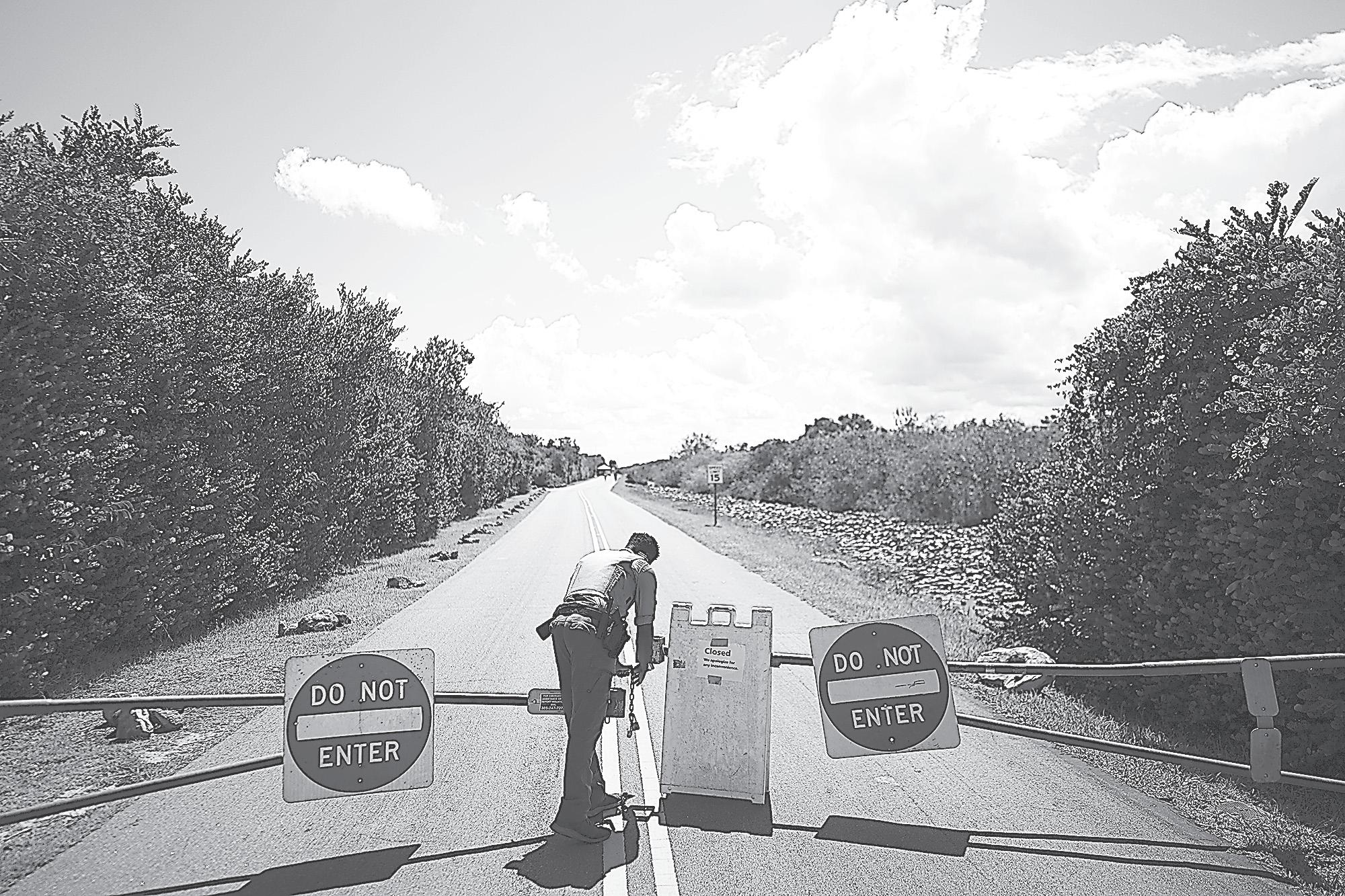
accessible to visitors.” But parks without “accessible areas” will be closed, and additional sites could
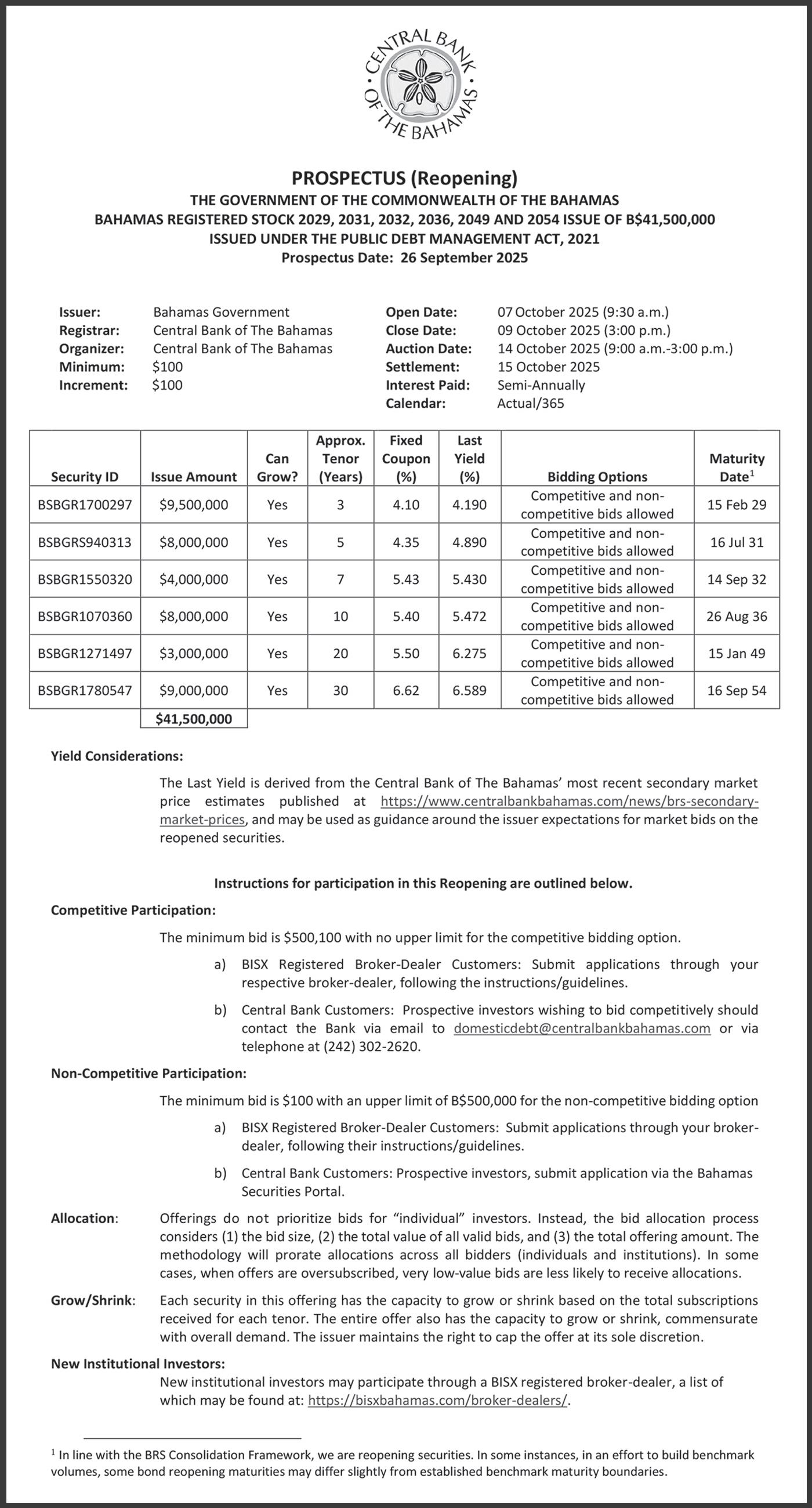
By AVA TURNQUEST Tribune Digital Editor
UNIVERISTY of The Bahamas assistant professor Dr Mayuri Deka has
warned that the erosion of humanities education, and by extension, critical thinking in schools both at home and abroad undermines democracy. Speaking at UB’s Future
of Democracy Conference, Dr Deka said the worldwide retreat from humanitiesbased programmes due to funding cuts, if unchecked, will produce students less equipped to question



information, engage with diverse perspectives, or imagine alternative futures.
“Anything that involves democratic processing is dependent on critical thinking, and that begins in the education system,” said Dr Deka, who presented at UB’s Future of Democracy Conference yesterday.
“From kindergarten up, the classroom is the most important space that young people have, because that is where they learn how to parse information, to figure out whether it’s factual or not, and then decide.”
Dr Deka underscored that fewer students are being exposed to literature, even as research shows today’s generation reads more than any before. The difference, she said, is that young people are reading in new spaces — through digital platforms, music, and media from other cultures — and schools must adapt curricula to connect those forms of engagement back to critical thinking.
Her presentation explored how globalisation and supranational institutions increasingly shape government decisions at the expense of the democratic majority, fuelling distrust and disengagement. She argued that while technology has empowered
youth movements around the world — from the Arab Spring to Gen Z-led protests in Nepal and the Philippines — it also amplifies misinformation and ideological silos that threaten democratic participation.
In a side interview with The Tribune, Dr Deka stressed that critical thinking has been politicised, pointing to how the term “woke” has been weaponised as an insult.
“Think,” she said, “about the word used for liberals, they are called woke. What does that mean? You would rather be asleep? That’s what you want? You want people to be sleeping. Now ‘woke’ has become a derogatory insult, but instantly if someone calls you woke, you should ask them, so you want me to be asleep?”
She added: “Our freedom is at stake. I’m not talking about freedom in terms of liberalism. I’m talking about the freedom to be who you are, to think differently and to not be persecuted if you don’t agree. That is what is going.”
Dr Deka said Bahamians may not yet connect present challenges to authoritarian trends, but cautioned that ripple effects are already being felt.
“It is a distant thing to a
certain extent,” she said.
“We have not reached there. But we are starting to see it, because of the number of students who could not go to the United States to continue their studies due to visa issues. Now they feel it firsthand. What happens in one country affects all of us.”
She explained that the underlying risk is an education system solely focused on producing workers and leaves young people unable to imagine alternative futures.
“There’s no time for imagination,” she said when asked about the impact of socioeconomic factors like increasing poverty or high crime. “The system has been built so that you just exist. You don’t want people to be imaginative, you don’t want them to be creative, because then they question. You want them just on the edge of existence, because then there is no questioning at all.”
For Dr Deka, classrooms must become spaces where students can imagine, empathise, and build resilience against disinformation. Without that, she warned, citizens risk becoming technically skilled but politically powerless.
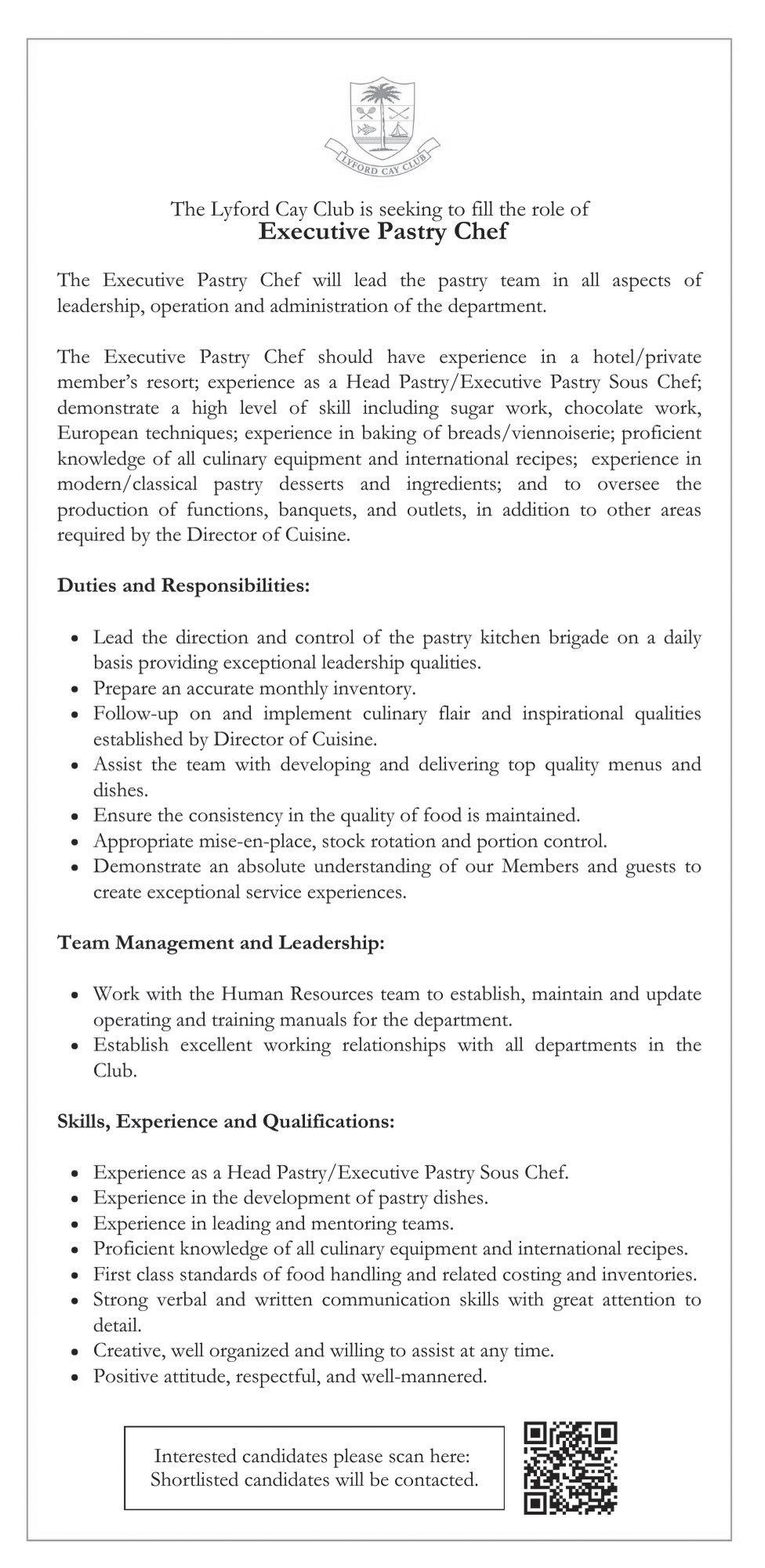
By LEANDRA ROLLE Tribune Chief Reporter lrolle@tribunemedia.net
DAYS after a US government report flagged “growing concerns” about governance in The Bahamas, a prominent professor is calling on citizens to “apply pressure” on the government to deliver long-promised reforms.
Dr Ian Strachan, a researcher at UB, said he hopes to spark that momentum through the Future of Democracy Conference, a four-day event bringing together activists, scholars and concerned citizens to discuss democracy, inclusivity and political representation.
His comments follow the release of the US government’s latest investment climate statement, which again criticised The Bahamas for failing to fully implement anti-corruption laws needed to strengthen transparency and accountability.
Critics have long accused the Davis administration of sidelining good governance measures, underfunding the Freedom of Information Unit and the Office of the Ombudsman, and falling short of best practices under the Public Procurement Act.
Yesterday, Dr Strachan told The Tribune: “We know that in election cycles, political parties promise reforms like campaign finance reform and freedom of information and ombudsman and procurement and all these things, but then when they actually get in power, they don’t actually implement and give these things the full resources that they deserve, that they require, etc.
“So we know that the citizen has a role to play in applying pressure, applying pressure, shaping opinion, setting expectations, and so that’s what we’re trying to do.”
Dr Strachan warned that government inaction and weak transparency fuel corruption, which in turn, he said, drives up living costs
and undermines public services.
This, he added, means less funding for nurses, teachers and critical infrastructure such as roads and schools.
“I really hope and pray that citizens become more and more vocal and more engaged and just cast your vote, use your voice, write letters, write petitions, go and talk to your representatives. Demonstrate if you have to, boycott if you have to. Unfortunately, that’s just the way it works. That’s the only way democracy delivers,” he said. The conference, held October 1st – 4th, is free to the public and being held at the University of the Bahamas.
Yesterday’s session featured several speakers, including researcher Jamal Archer, who presented his research proposal on childhood trauma among criminal offenders raised in singlemother households.
Mr Archer told attendees the purpose of his research is to gain a broader understanding of offenders raised in single-mother households.
He said he plans to use a convenient sample of around 30 male offenders and will conduct a cross-sectional survey administered in a secure facility.
He noted that previous research shows a positive relationship between femaleheaded households and violent crime.
Citing past data, he said that in 1987, an estimated 64 percent of households in New Providence were headed by single parents, most of them women.
He also highlighted the impact of the “contract worker” migration between 1943 and 1965, when over 30,000 Bahamian men moved to the US for farm work.
He said their absence contributed to a sharp rise in single-mother household and weakened paternal authority, calling it a “significant point in Bahamian history.”
‘Do we need another pandemic to standardise using Bahamian talent?’
By AVA TURNQUEST
Tribune Digital Editor aturnquest@tribunemedia.net
UNIVERSITY of The Bahamas Assistant professor
Dr Danny Davis yesterday questioned whether it will require another pandemic to standardise the use of Bahamian expertise over foreign talent as academics convened for the start of a four-day conference on the Future of Democracy.
In his opening presentation, pointedly titled “The Bahamas Needs Another Pandemic,” Dr Davis noted that when COVID-19 shut borders and foreign consultants were unavailable, Bahamian professionals proved they had the expertise to deliver.
“I had the point that if the COVID had only affected The Bahamas, we would have brought in consultants,” he told The Tribune
“But because it was a global pandemic, we couldn’t bring in consultants because those consultants were busy helping themselves. And so, again, another example of just believe in ourselves. We need to believe in ourselves, and we can get it done.”
From vaccine rollouts to moving university courses online, the lecturer and Assistant Vice President of Institutional Strengthening & Accreditation furthered that the reliance on homegrown talent to advance the nation should be standard practice, not a crisis exception.
He called on officials to institutionalise reliance on Bahamian professionals to slow brain drain and build sustainable systems, adding that once the borders reopened the country “tragically reverted” to outsourcing.
“We only respond and we only recognise the talent that’s in [The Bahamas] when we have a crisis, and I use the COVID example,
“I believe that that the return of those men and the way they saw the world after living in the US South, it impacted and it influenced Bahamians culture tremendously. We saw elevated male homicide rates, poor educational outcome among males, and an increase in child or childbirth outside of marriage,” he said.
Mr Archer also discussed a possible link between the expansion of welfare
systems and the rise of single motherhood.
He noted that in the US during the 1960s and 70s when welfare programmes grew, single motherhood increased sharply.
He added that a similar pattern appeared in The Bahamas in the 1960s, when the Ministry of Social Services was established, coinciding with a rise in single-parent households.
“The question is,” he said,
“did welfare incentivise the rise in single motherhood, or was it that the rise in single motherhood had incentivised welfare, which led me to question, what are the links between the welfare system, single motherhood and crime?”
Citing researcher Michael D Tanner, Mr Archer said welfare expansion in the US has been linked to higher rates of out-of-wedlock births and increased family
instability.
“Some of what Tanner is saying here stems from US culture,” he said. “Now, the same may not be true for The Bahamas, but we don’t know because this is not an area that has been investigated but in the US, we know that, for example, the social service or the welfare system, it incentivised this idea of mothers continuing to have children within a single parent family.”

and the online courses, as examples of where we’ve done that to our detriment in a way, by not recognising, not providing a fertile soil for the cultivation of these [students] that we generate as a university.”
Dr Davis also pointed to the vaccine rollout as an example of how data-driven decisions improved outcomes, from opening new centres to managing appointments, and questioned whether those lessons were effectively being applied today.
“My point is that even now with the childhood vaccination programme, we are not using the skills and knowledge that we gained during COVID,” said Dr Davis, an assistant professor in UB’s Chemistry department.
“That programme is going to come under threat fairly soon. We need to be ready to proactively position our mothers and fathers to bring their children in to get vaccinated. This is why we need to do this. Some of those things from COVID definitely will help us be successful.”
For its 4th installment, the annual conference turns its focus to ‘Social and Economic Justice, and Political Accountability in The Bahamas’.
Pointing the lens towards the institution, Dr Davis highlighted how over the 50-year history of the university and then College of The Bahamas, the selection of commencement speakers demonstrated a predilection for foreign success. His research found the majority of featured speakers were Bahamians recognised for success abroad, rather than those who excelled at home.
“The data shows that we’ve been predominantly using the individuals who were successful abroad as our speakers,” Dr Davis
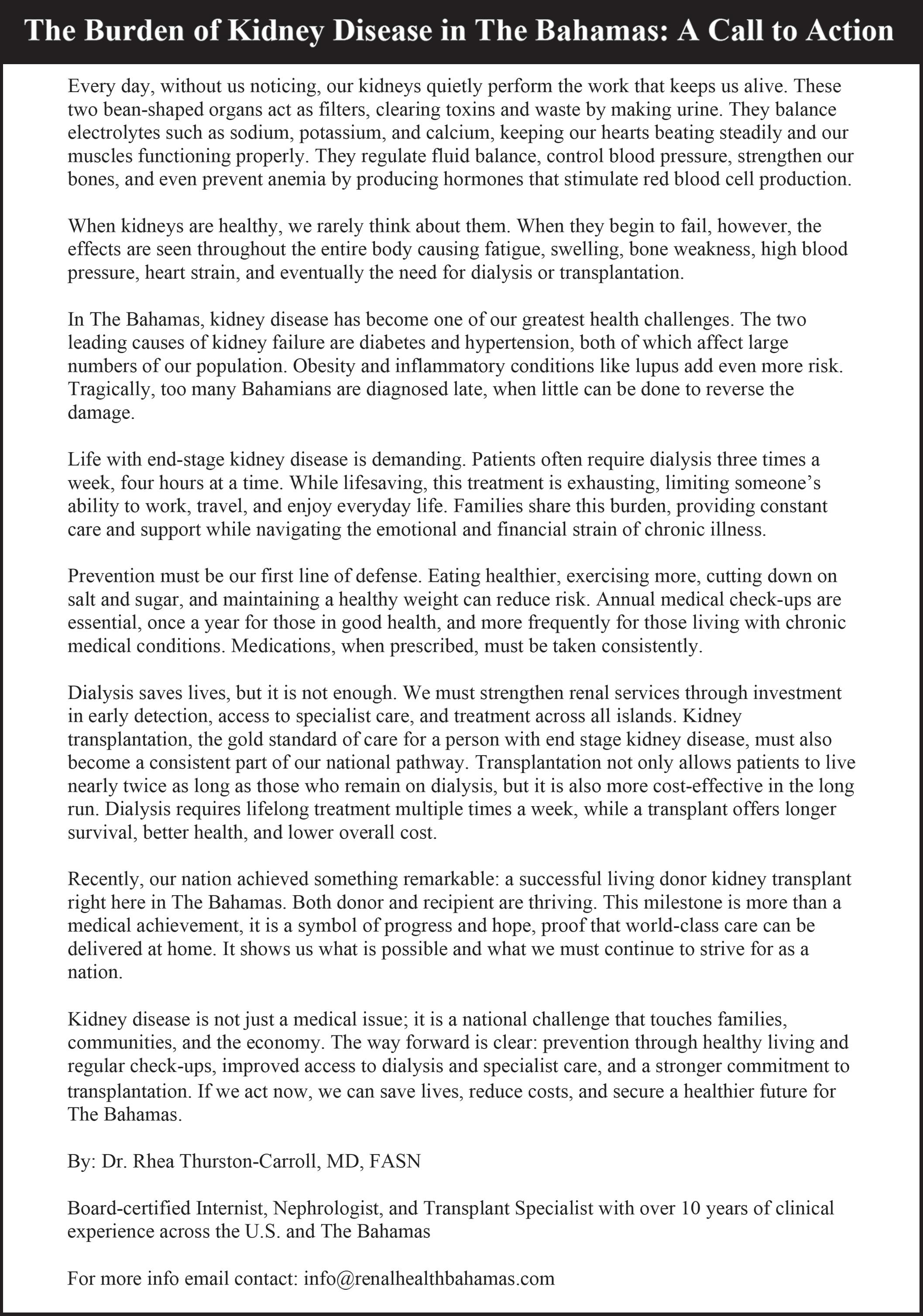
By HALLIE GOLDEN Associated Press
Jane Goodall, the conservationist renowned for her groundbreaking chimpanzee field research and globe-spanning environmental advocacy, has died. She was 91.
The Jane Goodall Institute announced the primatologist’s death Wednesday in an Instagram post. according to the Washington, DC-based institute, Goodall died of natural causes while in California on a US speaking tour. Her discoveries “revolutionized science, and she was a tireless advocate for the protection and restoration of our natural world,” it said.
While living among chimpanzees in africa decades ago, Goodall documented the animals using tools and doing other activities previously believed to be exclusive to humans, and also noted their distinct personalities. Her observations and subsequent magazine and documentary appearances in the 1960s transformed how the world perceived not only humans’ closest living biological relatives but also the emotional and social complexity of all animals, while propelling her into the public consciousness.
“Out there in nature by myself, when you’re alone, you can become part of nature and your humanity doesn’t get in the way,” she told The associated Press in 2021. “It’s almost like an out-of-body experience when suddenly you hear different sounds and you smell different smells and you’re actually part of this amazing tapestry of life.”
Goodall never lost hope for the future
She had been scheduled to meet with students and teachers on Wednesday to
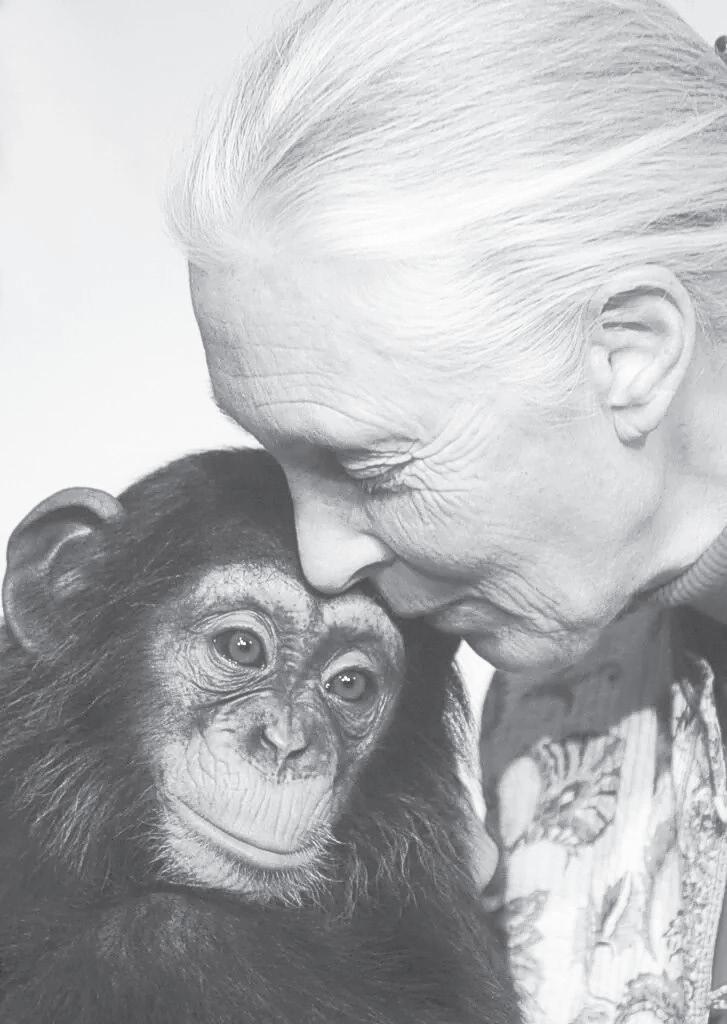
launch the planting of 5,000 trees around wildfire burn zones in the Los angeles area. Organizers learned of her death as the event was set to begin at the eF academy in Pasadena, said spokesperson Shawna Marino. The first tree was planted in Goodall’s name after a moment of silence. “I don’t think there’s any better way to honor her legacy than having a thousand children gathered for her,” Marino said. In her later years, Goodall devoted decades to education and advocacy on humanitarian causes and protecting the natural world. In her usual soft-spoken British accent, she was known for balancing the
grim realities of the climate crisis with a sincere message of hope for the future.
From her base in the British coastal town of Bournemouth, she travelled nearly 300 days a year, even after she turned 90, to speak to packed auditoriums. Between more serious messages, her speeches often featured her whooping like a chimpanzee or lamenting that Tarzan chose the wrong Jane.
“Dr. Jane Goodall was able to convey the lessons of her research to everyone, especially young people. She changed the way we see Great apes,” said audrey azoulay, director-general of UneSCO, the Un cultural agency.
While first studying chimps in Tanzania in the early 1960s, Goodall was known for her unconventional approach. She didn’t simply observe them from afar but immersed herself in every aspect of their lives. She fed them and gave them names instead of numbers, which some scientists criticized.
Her findings were circulated to millions when she first appeared on the cover of national Geographic in 1963 and soon after in a popular documentary. a collection of photos of Goodall in the field helped her and even some of the chimps become famous. One iconic image showed her crouching across from the infant chimpanzee named Flint. each has arms outstretched, reaching for the other.
In 1972, the Sunday Times published an obituary for Flo, Flint’s mother and the dominant matriarch, after she was found face down on the edge of a stream. Flint died soon after showing signs of grief and losing weight.
“What the chimps have taught me over the years is they’re so like us. They’ve blurred the line between humans and animals,” she said in 1997.
Goodall earned top civilian honours from a number of countries including Britain, France, Japan and Tanzania. She was awarded the Presidential Medal of Freedom in 2025 by thenUS President Joe Biden and won the prestigious Templeton Prize in 2021.
“Her groundbreaking discoveries have changed humanity’s understanding of its role in an interconnected world, and her advocacy has pointed to a greater purpose for our species in caring for life on this planet,” said the Templeton Prize citation, which honours individuals whose life’s
work embodies a fusion of science and spirituality.
Charting a course from an early age Born in London in 1934, Goodall said her fascination with animals began around when she learned to crawl. In her book, “In the Shadow of Man,” she described an early memory of hiding in a henhouse to see a chicken lay an egg. She was there so long her mother reported her missing to police.
She bought her first book — edgar Rice Burroughs’ “Tarzan of the apes” — when she was 10 and soon made up her mind about her future: Live with wild animals in africa.
That plan stayed with her through a secretarial course when she was 18 and two different jobs. By 1957, she accepted an invitation to travel to a farm in Kenya.
There she met the famed anthropologist and paleontologist Louis Leakey at a natural history museum in nairobi. He gave her a job as an assistant secretary.
Three years later, despite Goodall not having a college degree, Leakey asked if she would be interested in studying chimpanzees in what is now Tanzania. She told the aP that he chose her “because he wanted an open mind.”
The beginning was filled with complications. British authorities insisted she have a companion, so she brought her mother. The chimps fled if she got within 500 yards (460 meters) of them. She also spent weeks sick from what she believes was malaria.
But she was eventually able to gain the animals’ trust. By the fall of 1960 she observed the chimpanzee named David Greybeard make a tool from twigs and use it to fish termites from a nest. It was previously believed that only humans made and used tools.
She also found that chimps have individual personalities and share humans’ emotions of pleasure, joy, sadness and fear. She documented bonds between mothers and infants, sibling rivalry and male dominance. She found there was no sharp line between humans and the animal kingdom.
In later years, she discovered chimpanzees engage in a type of warfare, and in 1987 she and her staff observed a chimp “adopt” a 3-year-old orphan that wasn’t closely related.
Her work moved into global advocacy after she watched a disturbing film of experiments on laboratory animals in 1986.
“I knew I had to do something,” she said. “It was payback time.”
When the COVID-19 pandemic hit in 2020 and halted her in-person events, she began podcasting from her childhood home in england. Through dozens of “Jane Goodall Hopecast” episodes, she talked with guests including US Sen. Cory Booker, author Margaret atwood and marine biologist ayana elizabeth Johnson.
“If one wants to reach people; If one wants to change attitudes, you have to reach the heart,” she said during her first episode. “You can reach the heart by telling stories, not by arguing with people’s intellects.” In later years, she pushed back on “gloom and doom” messaging and aggressive tactics by climate activists, saying they could backfire. She also built a strong social media presence, advising millions of followers about the need to end factory farming and how to avoid being paralysed by the climate crisis.
Her advice: “Focus on the present and make choices today whose impact will build over time.”

said.
“So we are sort of implicitly supporting or sending this message of foreign is better and I think we shouldn’t be a part of that message.
“This notion of us having to go abroad to establish yourself, no, we should be building our
country with these skill sets. And I’m making the point that we do have the skill sets.
“People need an opportunity. We do have the brainpower. because [Bahamians] are successful abroad. So why couldn’t they be successful here?”
For Dr Davis, democracy is stronger when the nation demonstrates that its believes in local
expertise and creates opportunities for professionals to thrive at home.
“People need an opportunity, he added.
“So it’s just an appeal.
I’m not saying that we don’t use Bahamians as consultants what I’m saying is that we need to have institutionalised so it can be to the same extent that we saw during COVID.”



